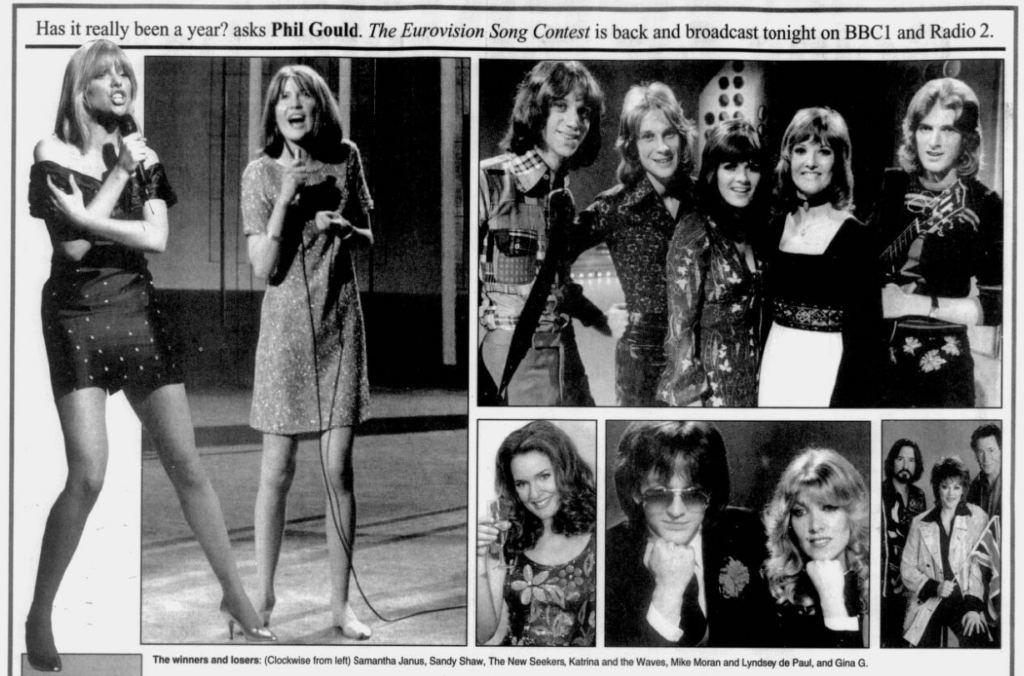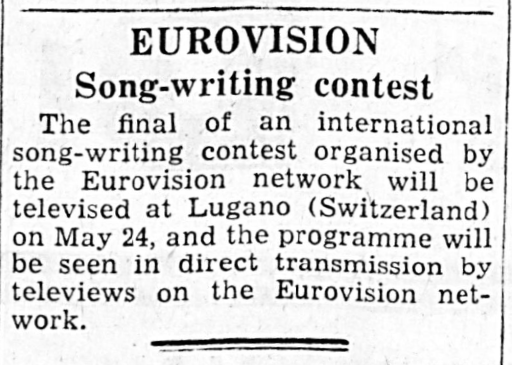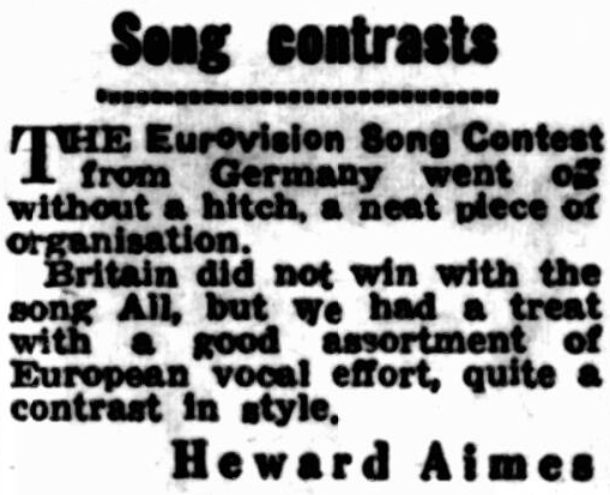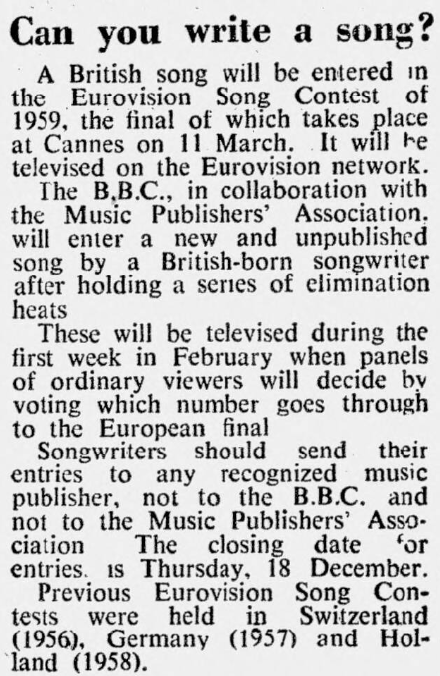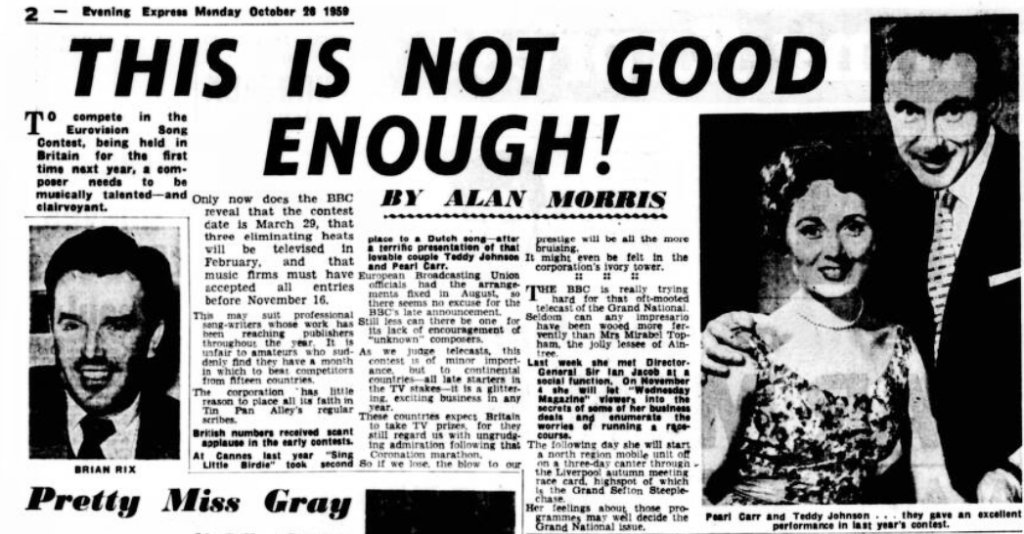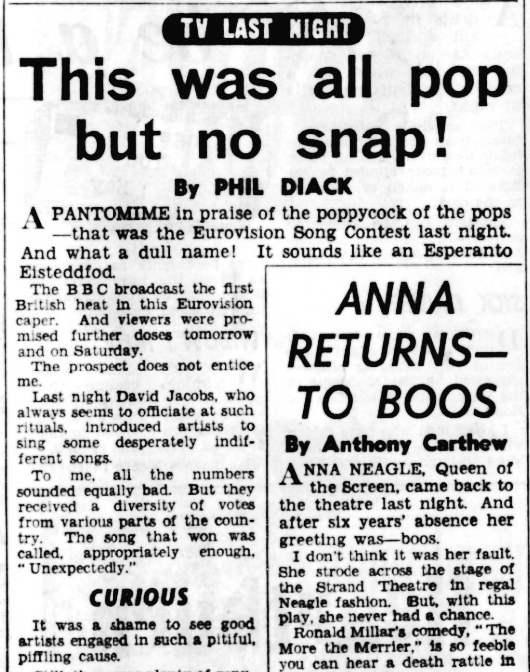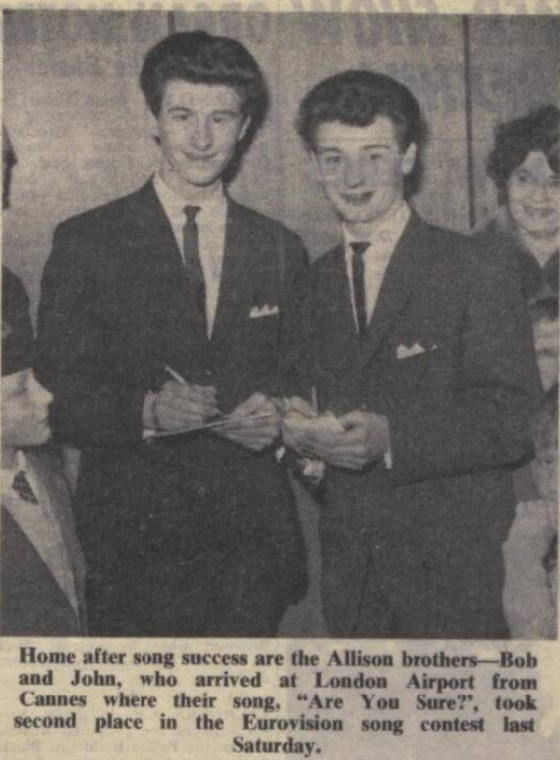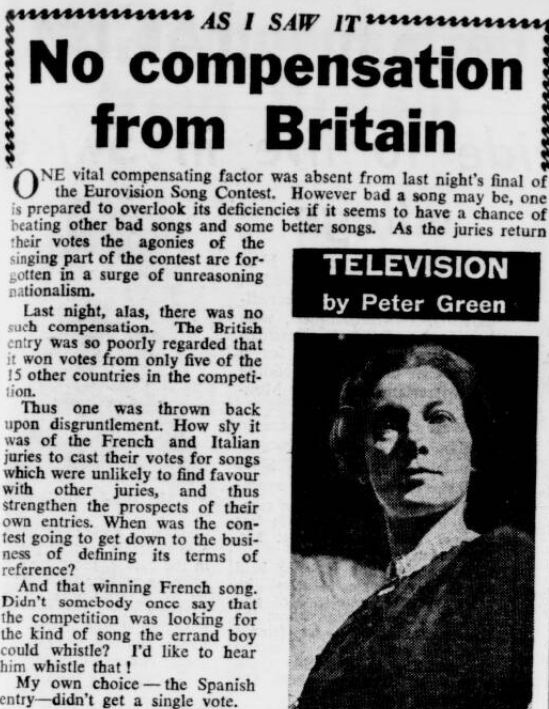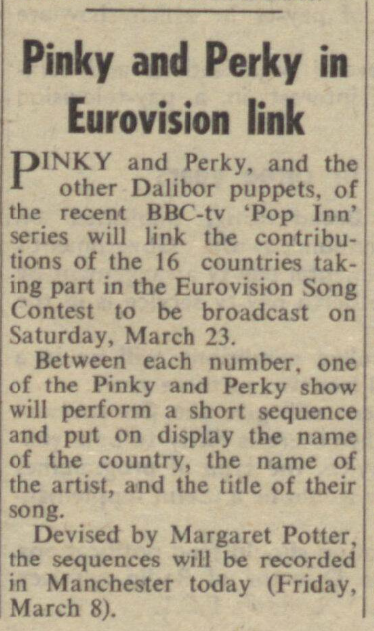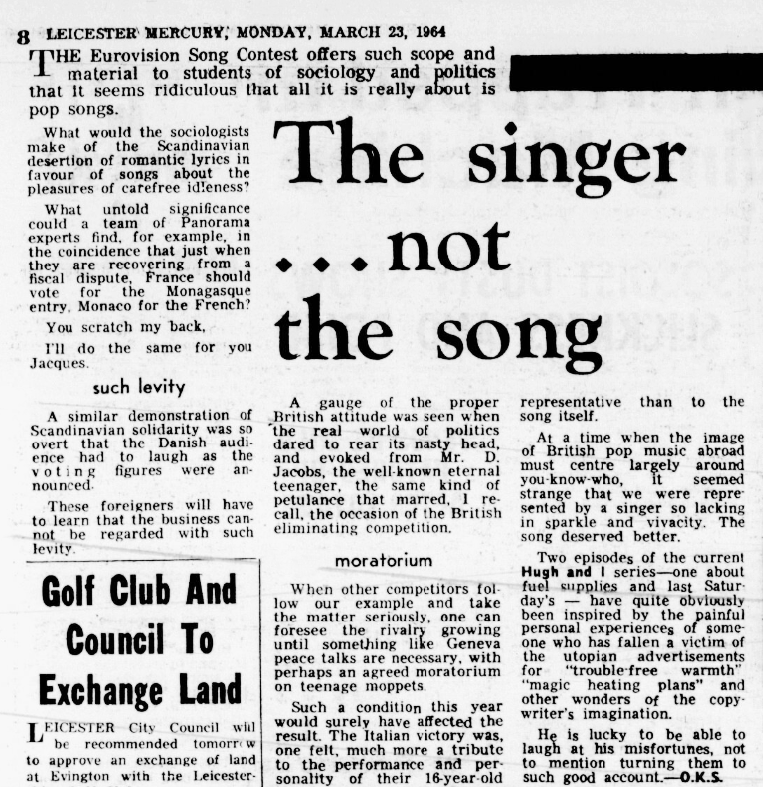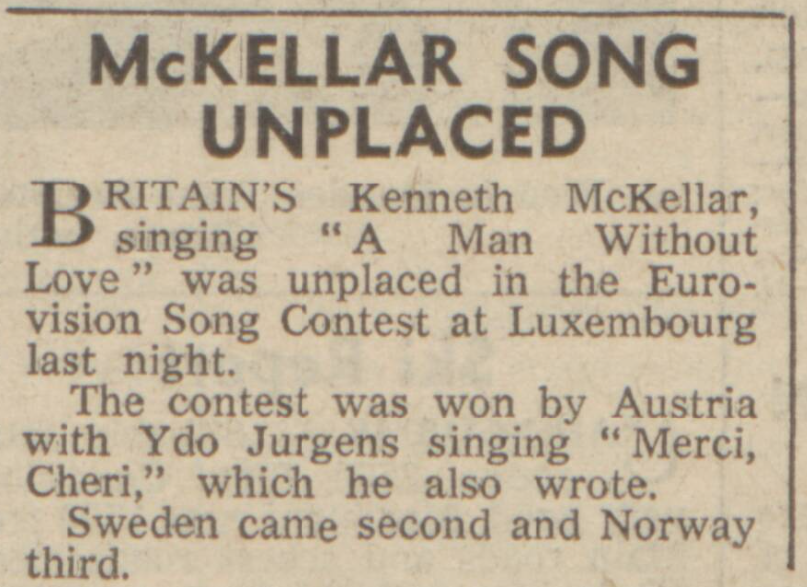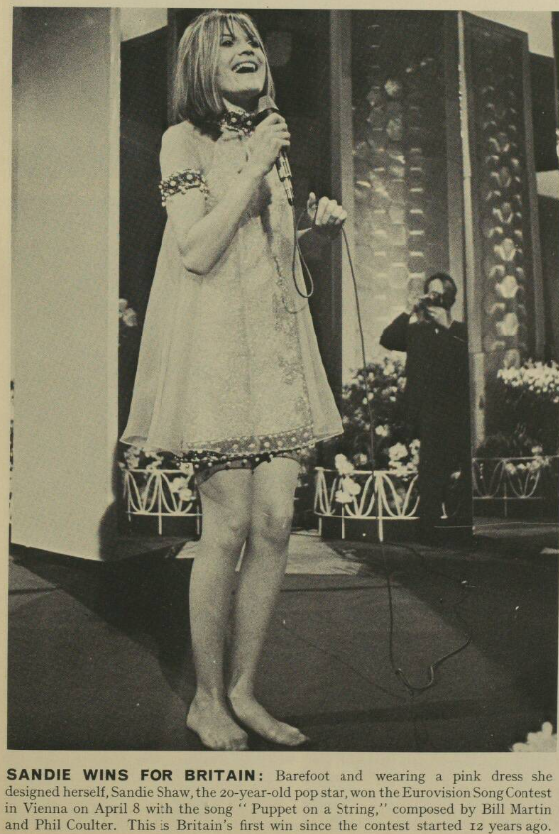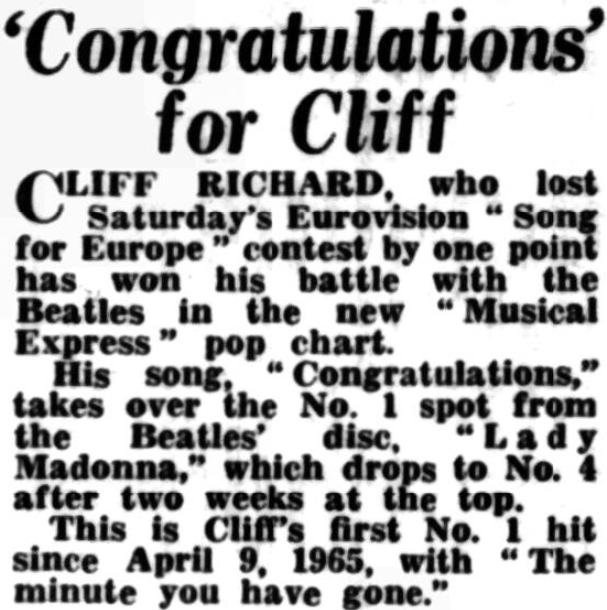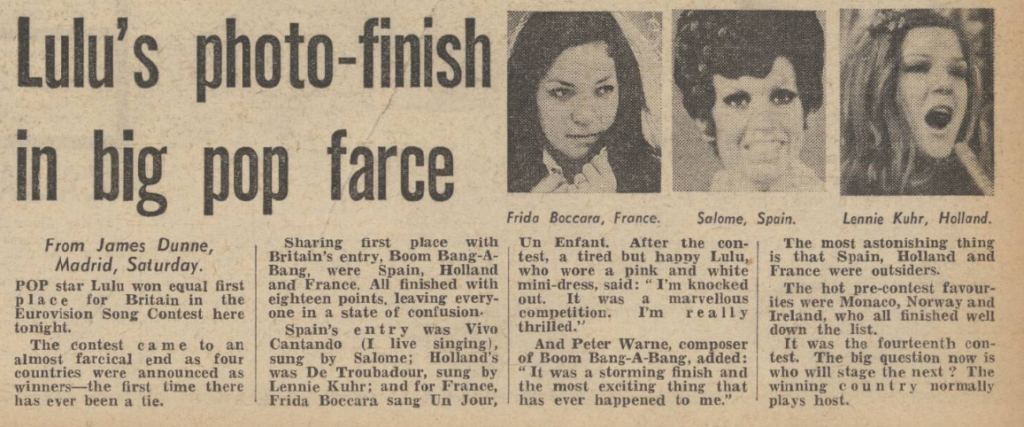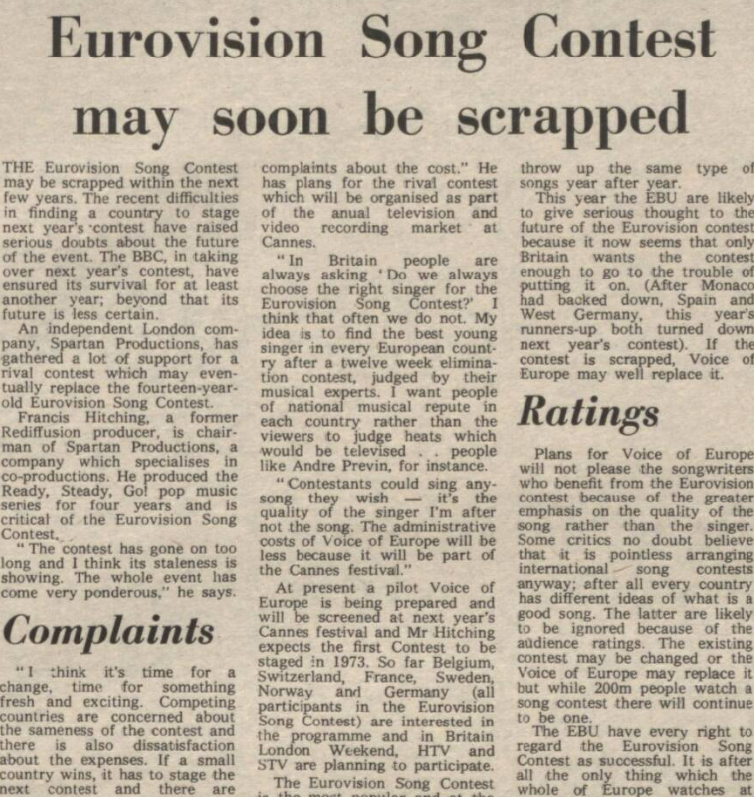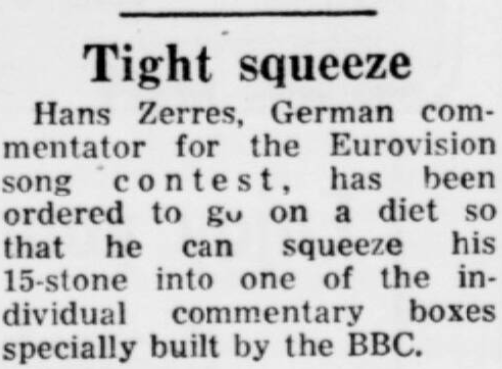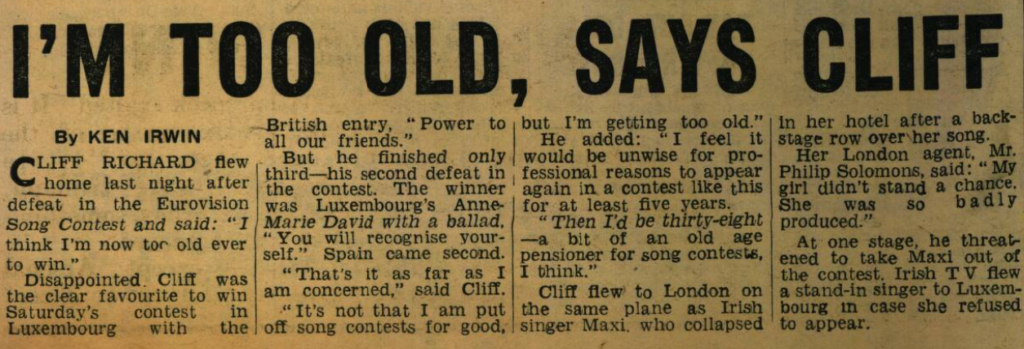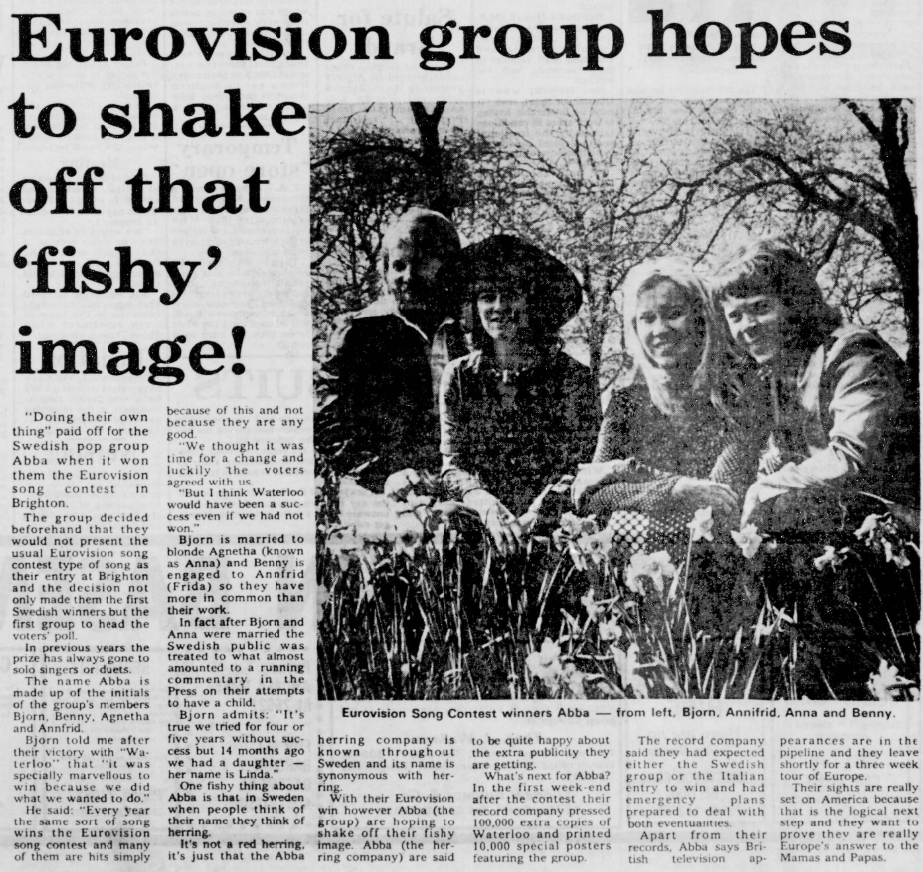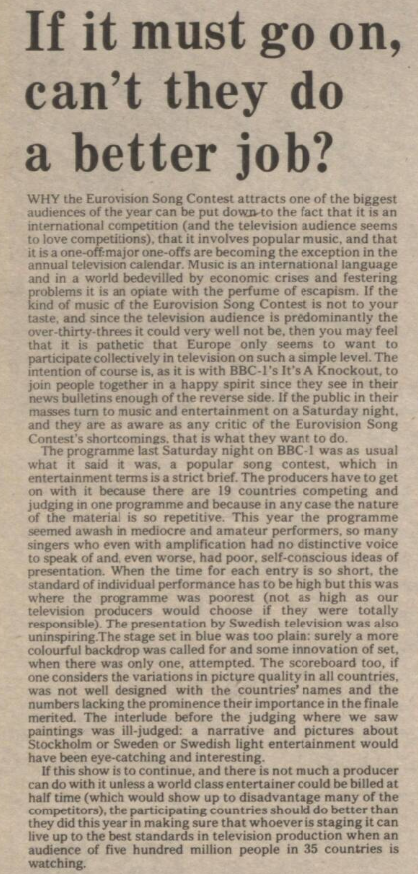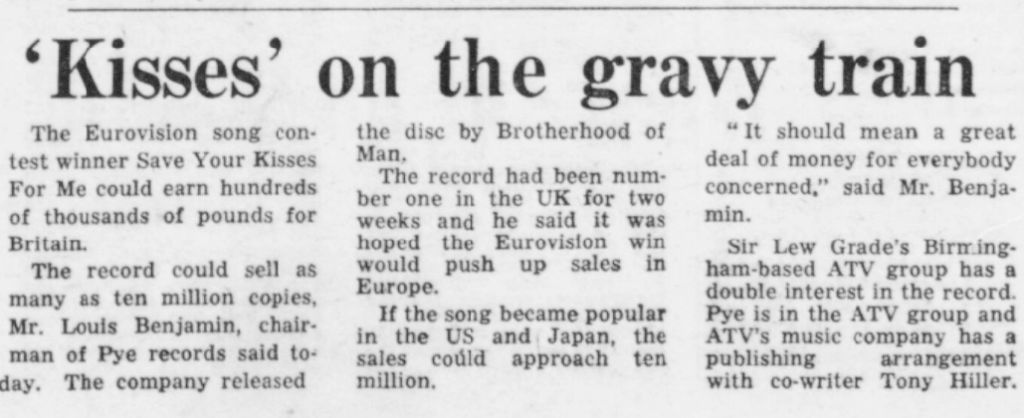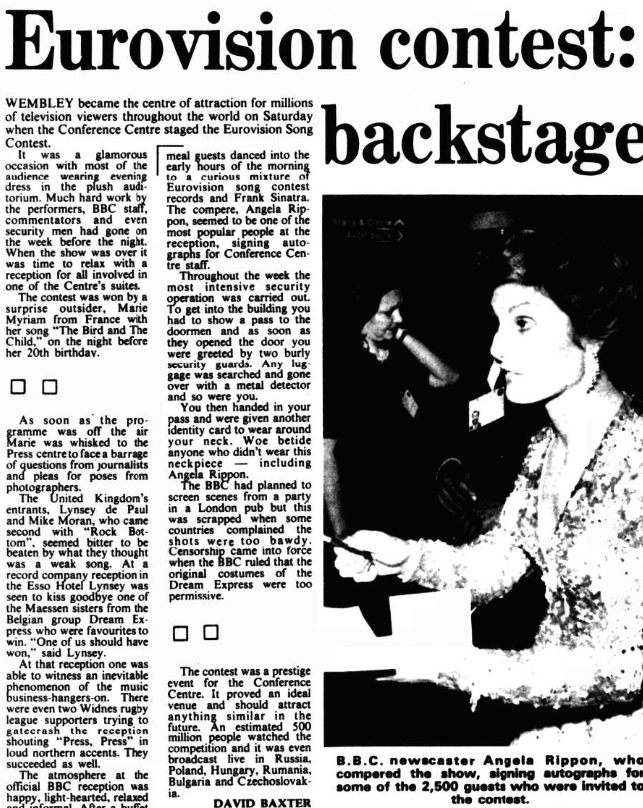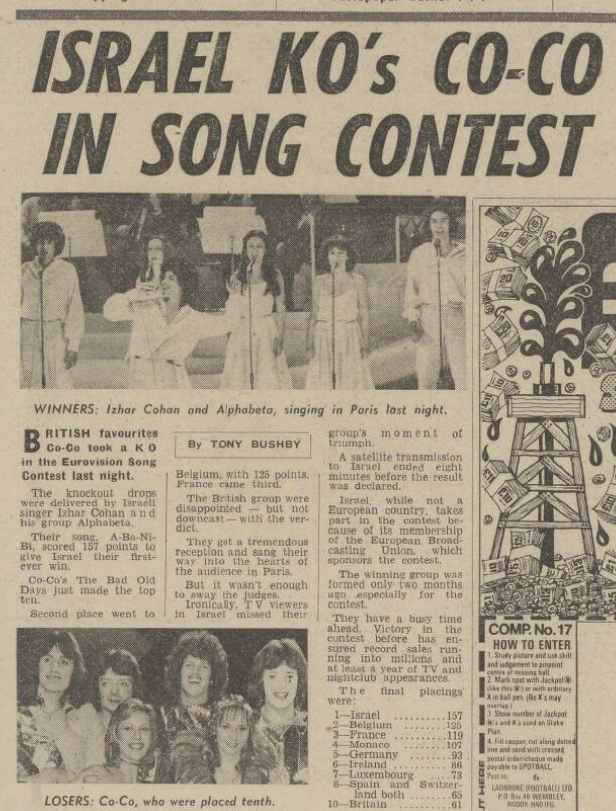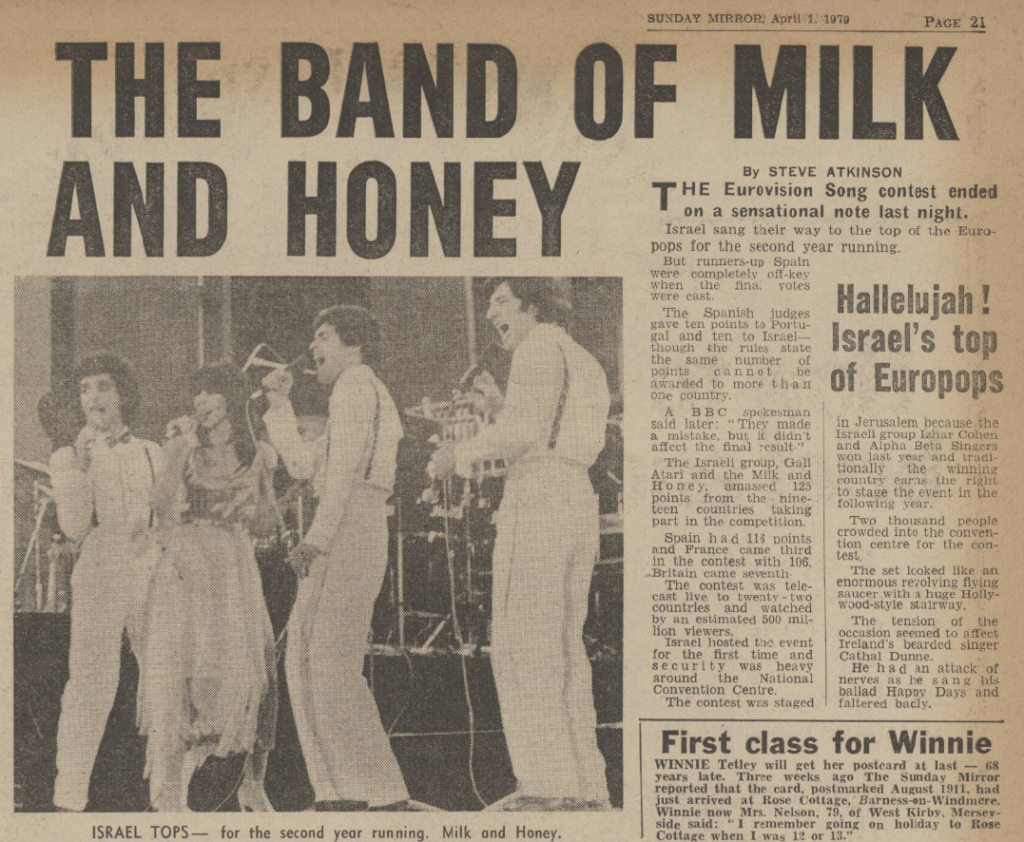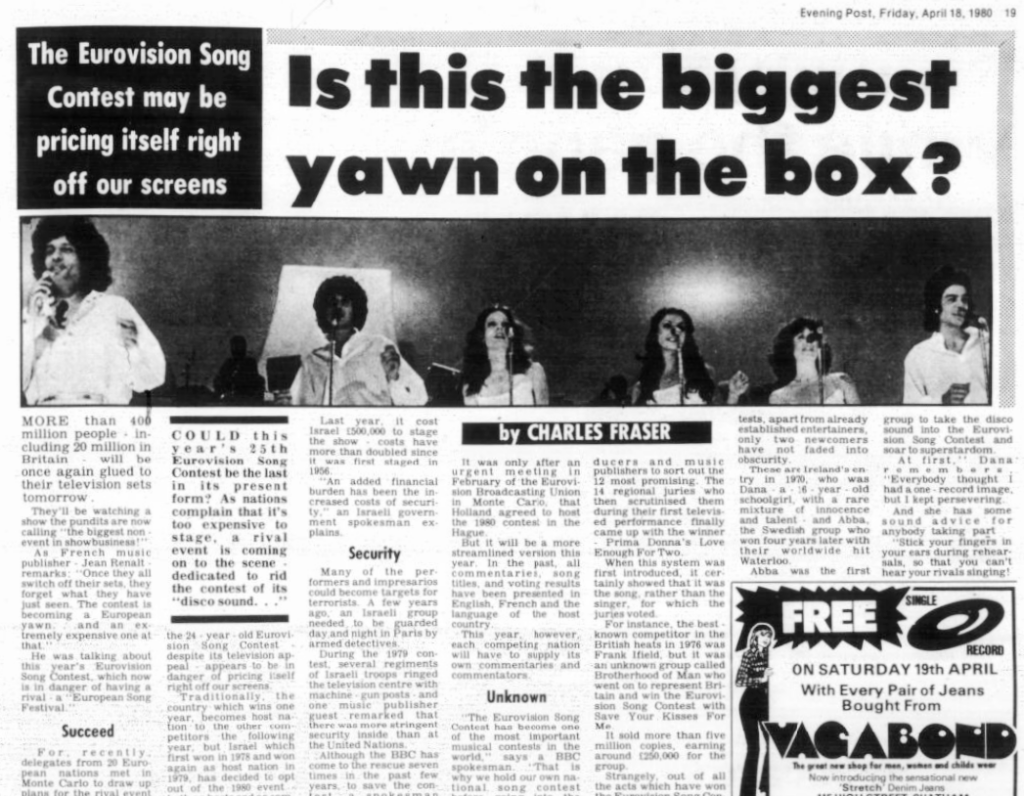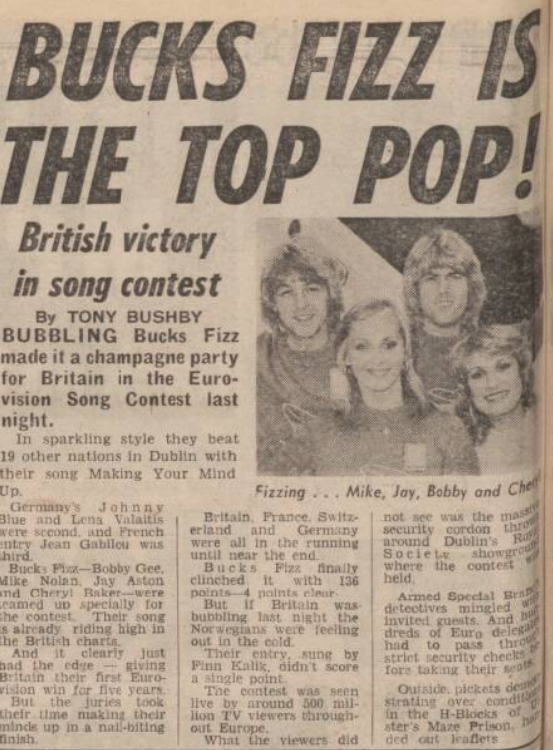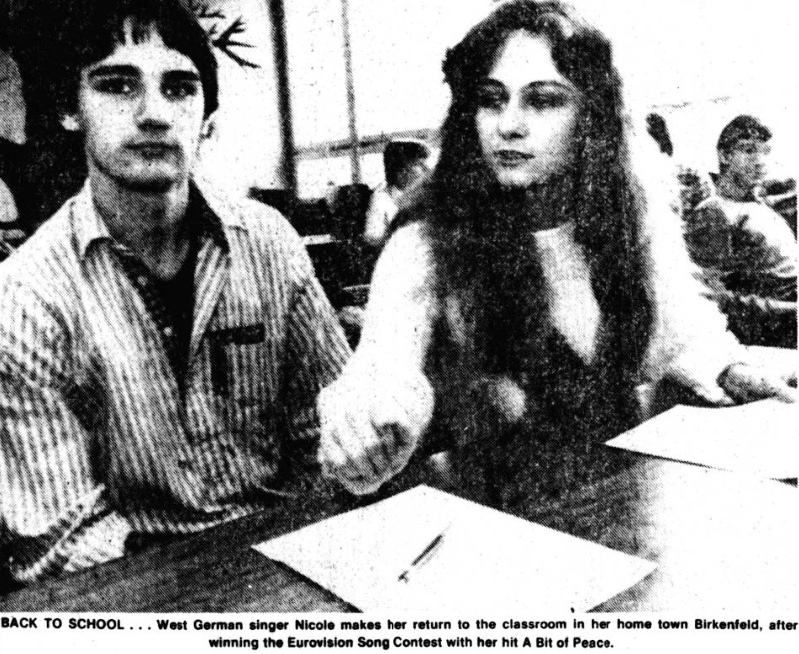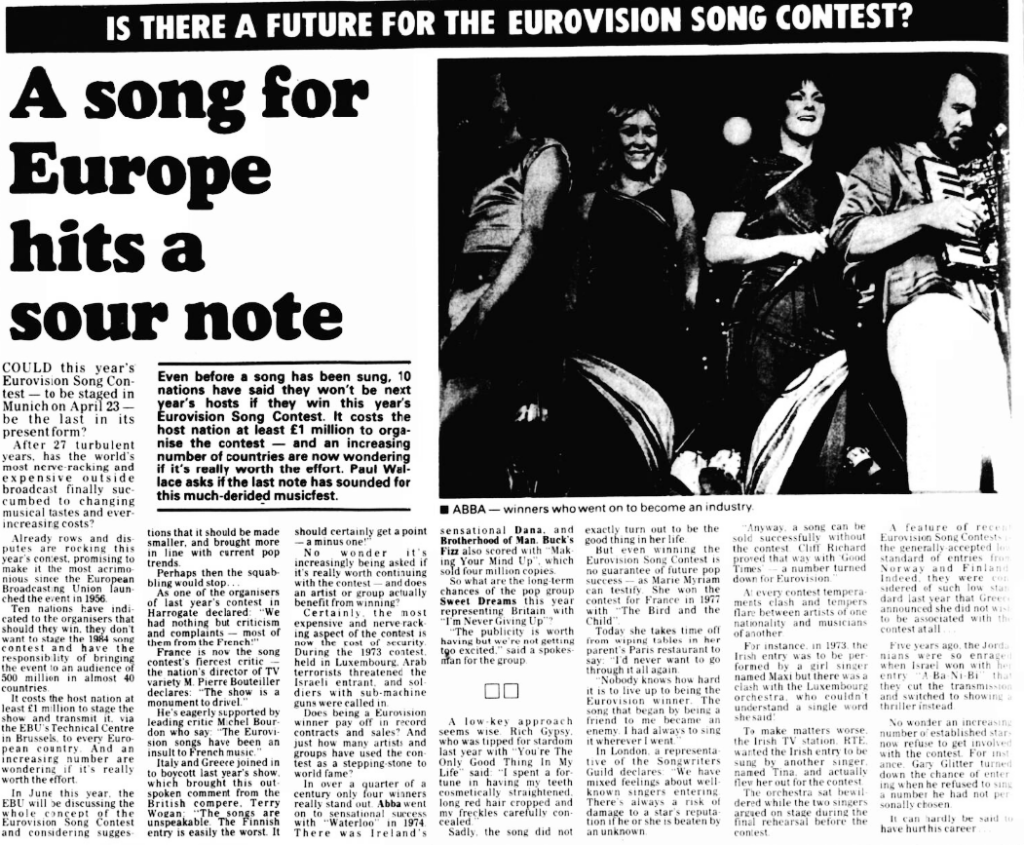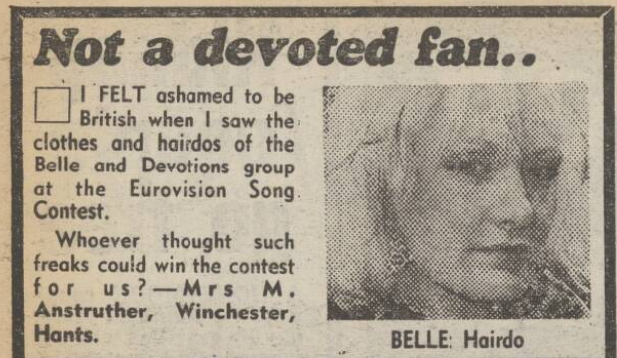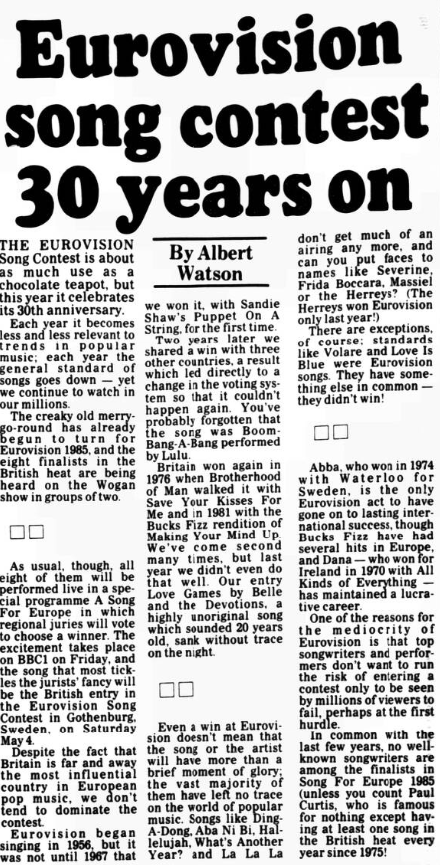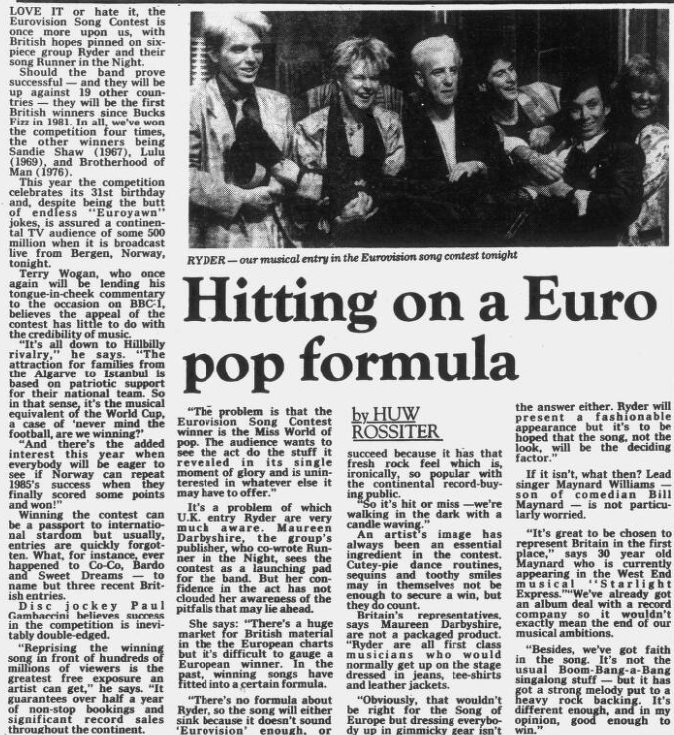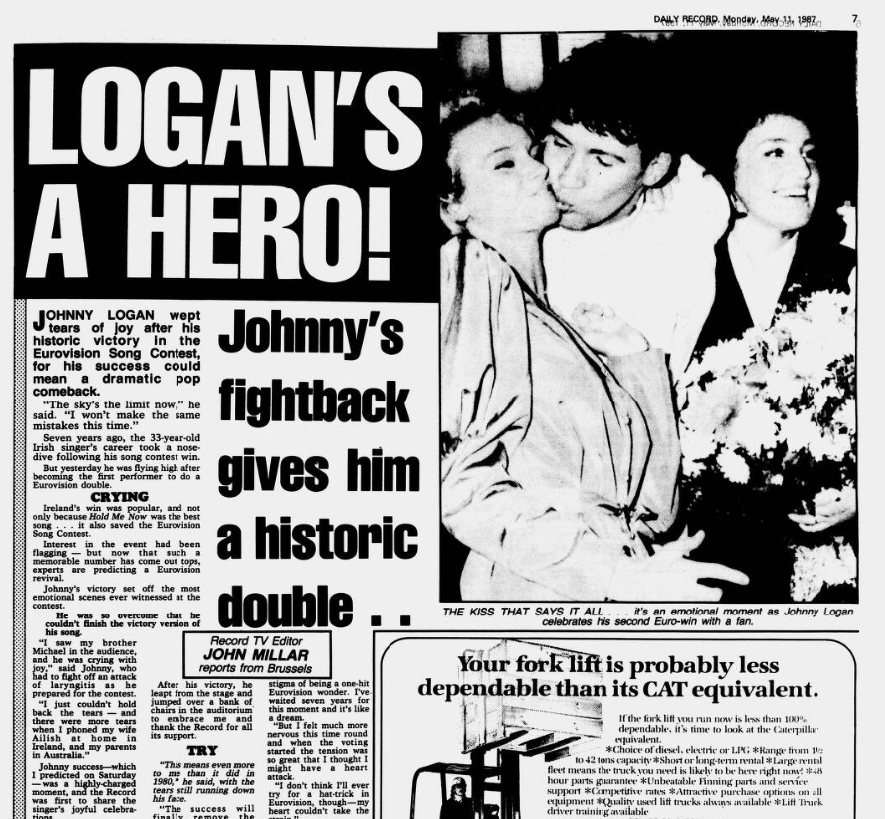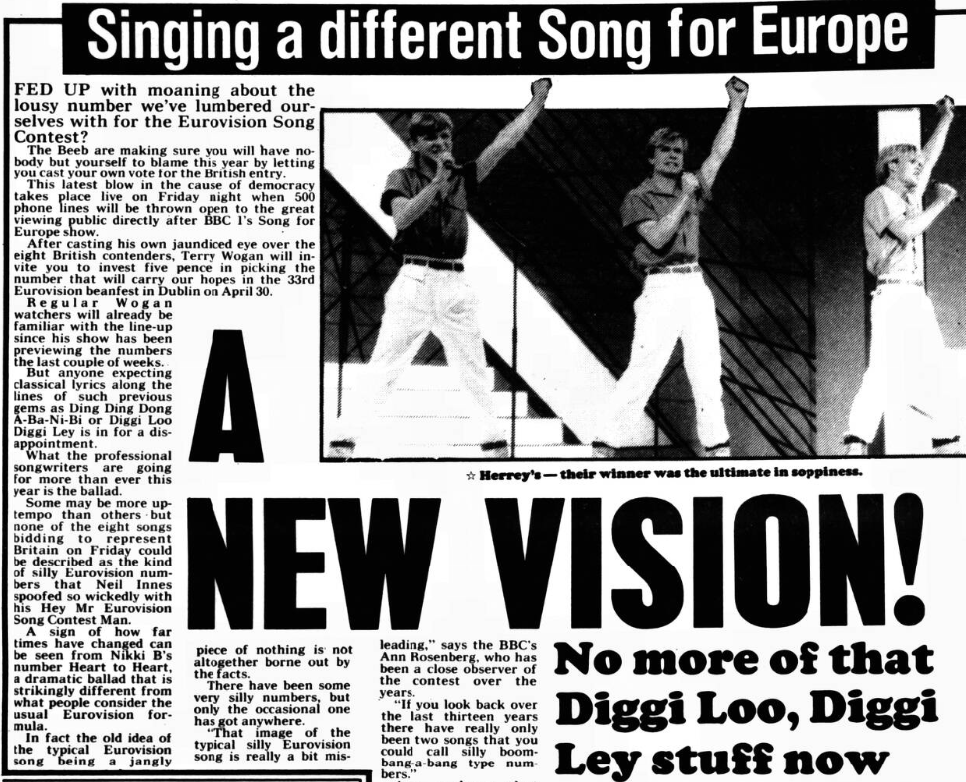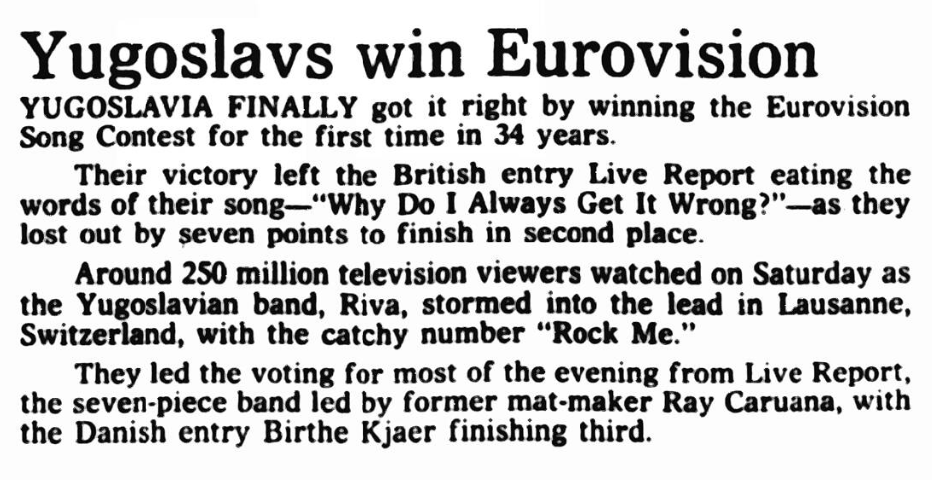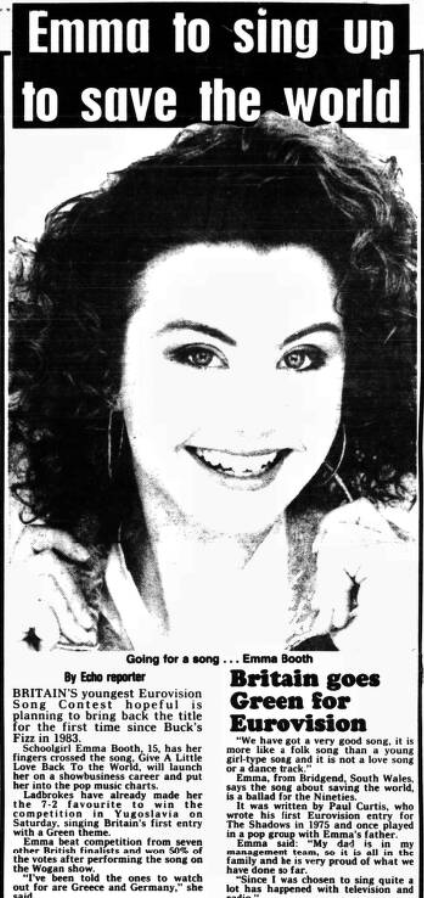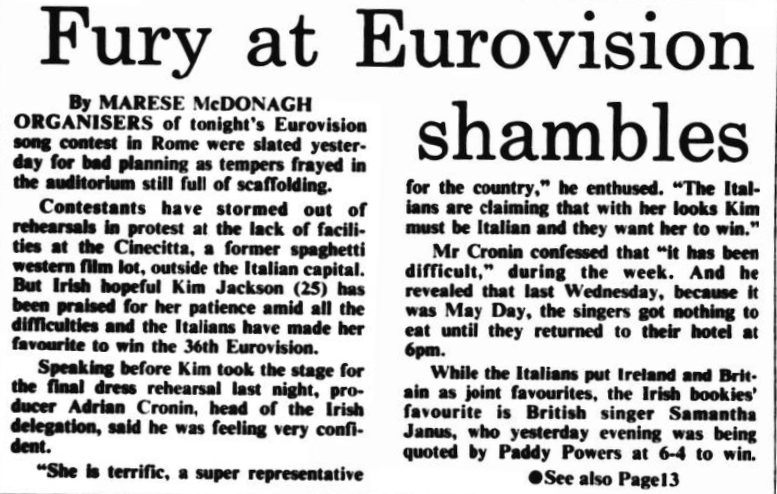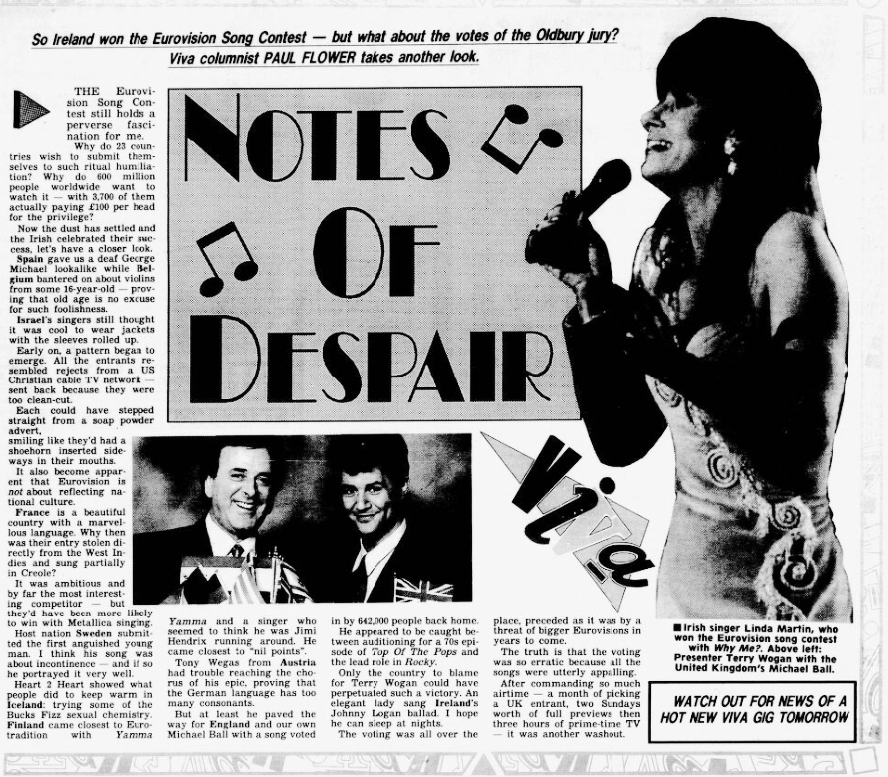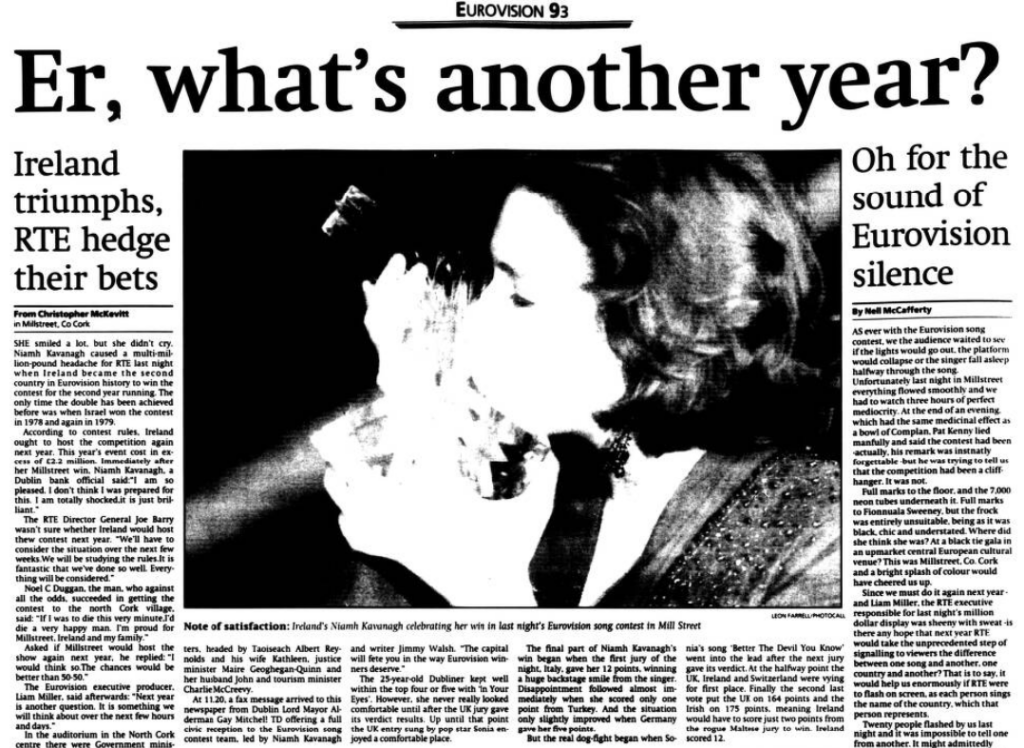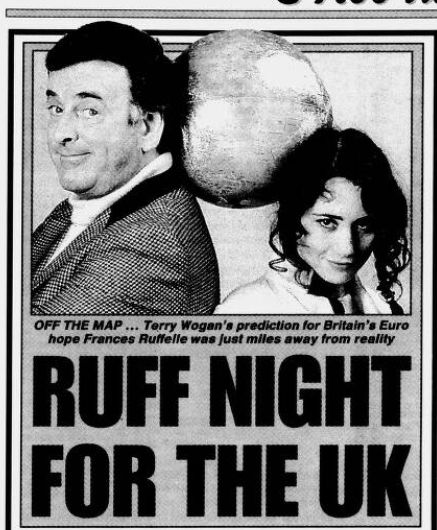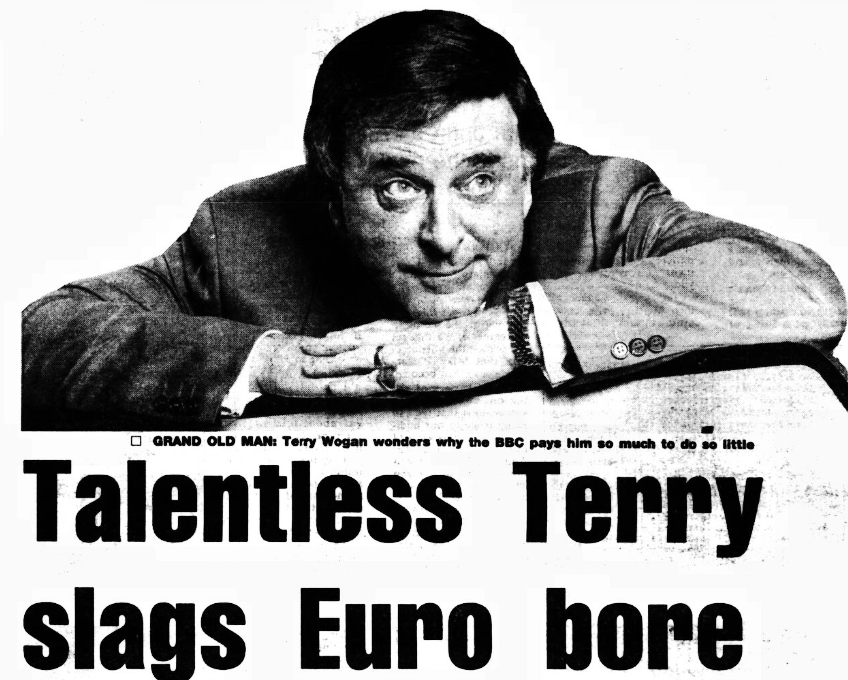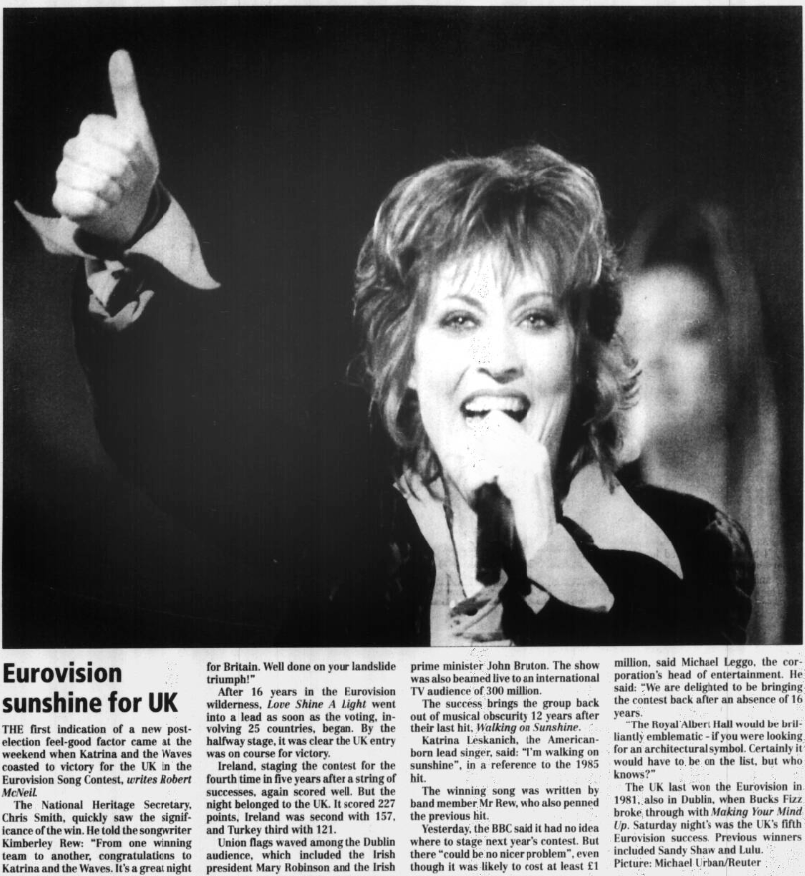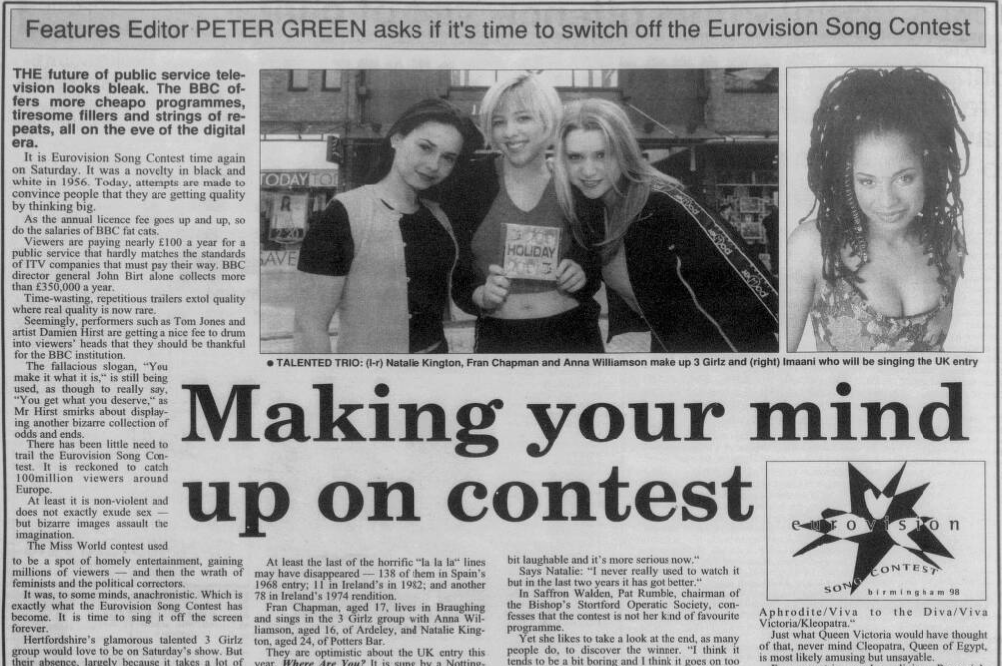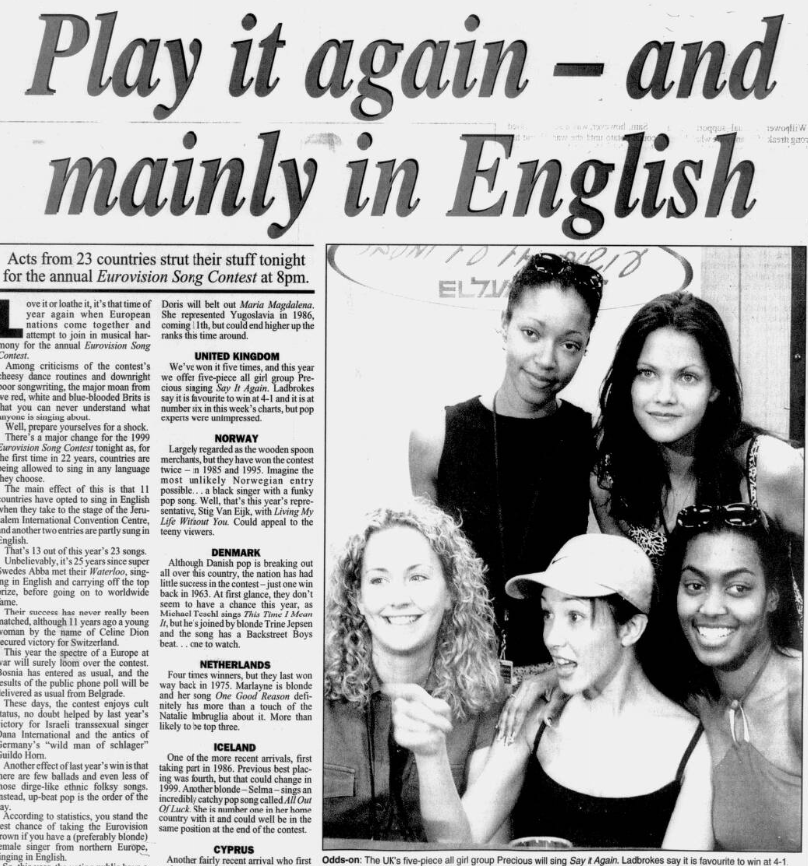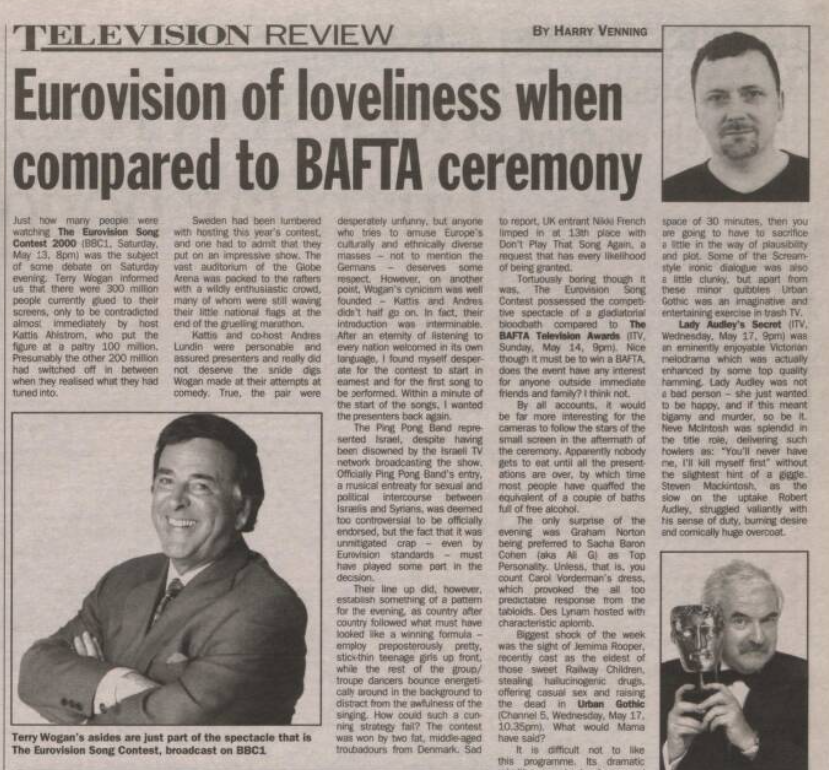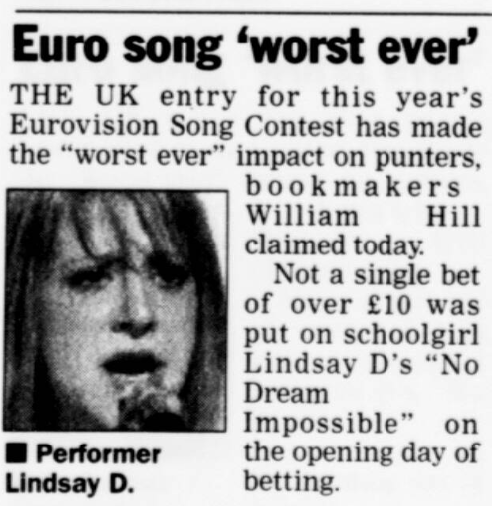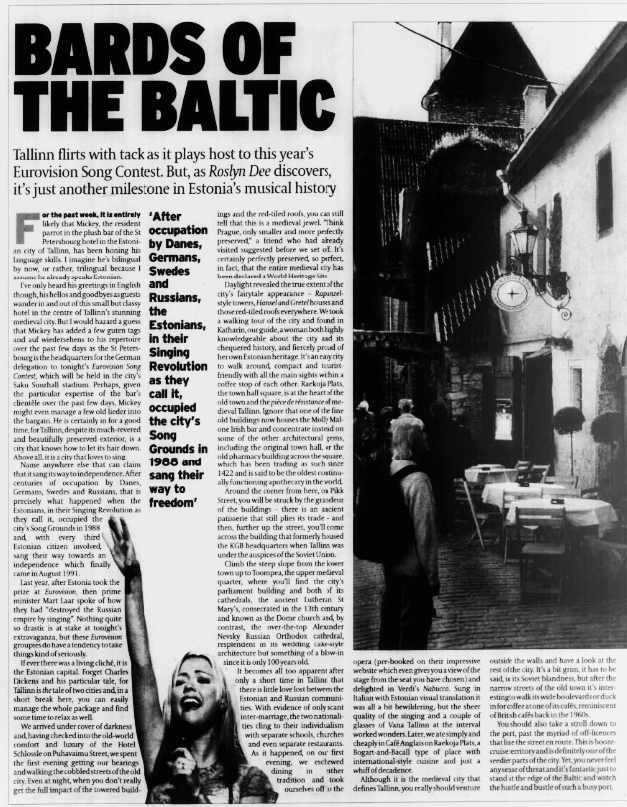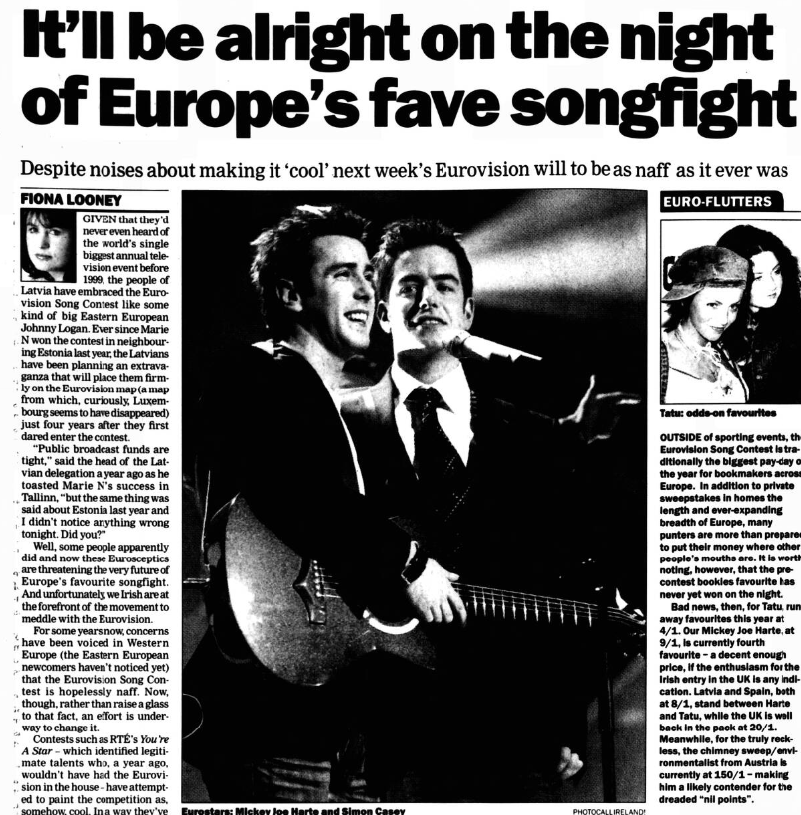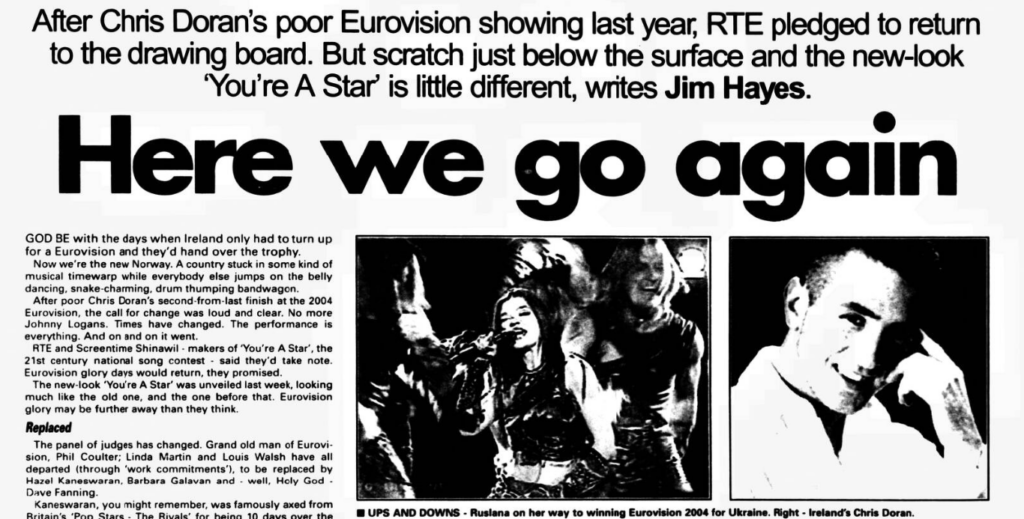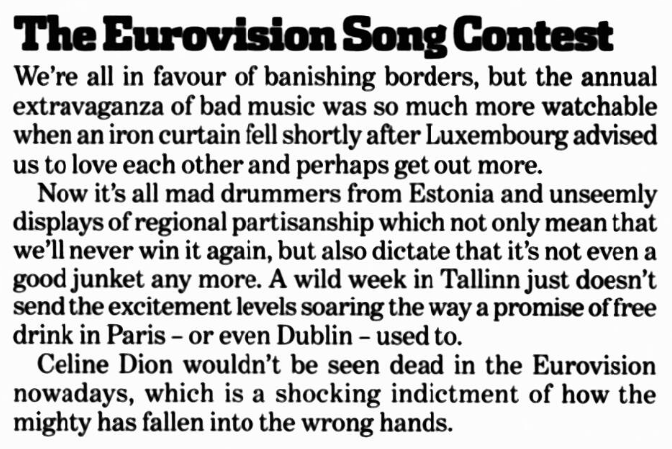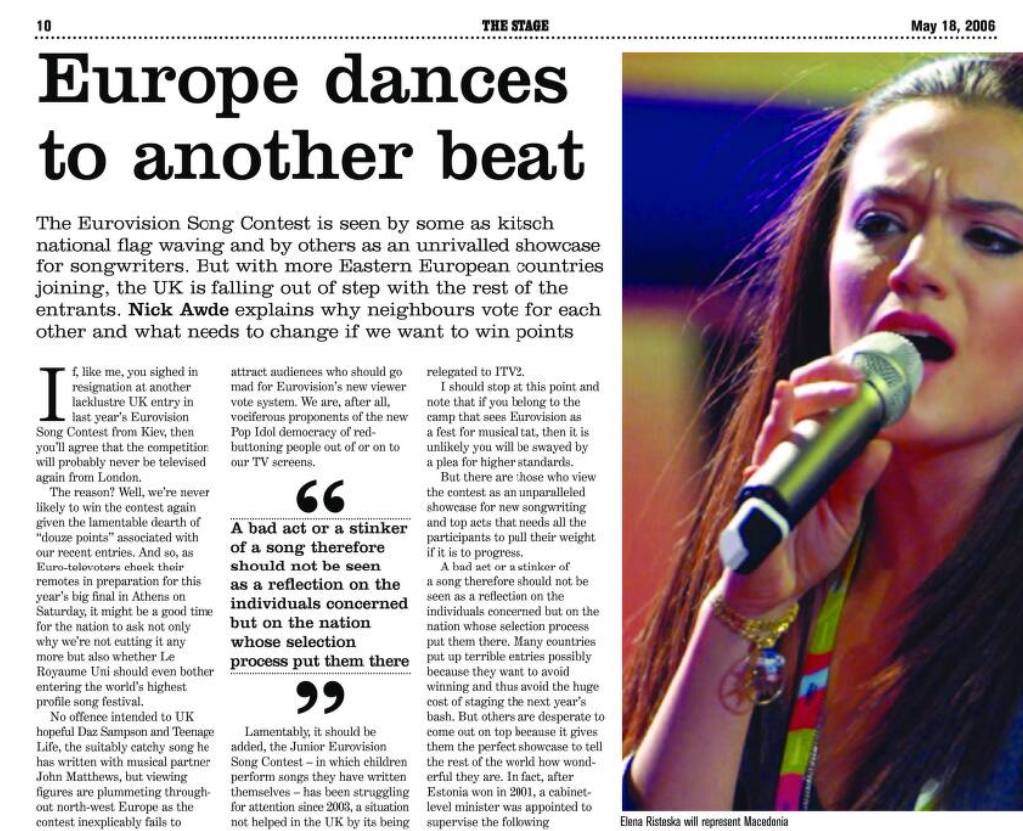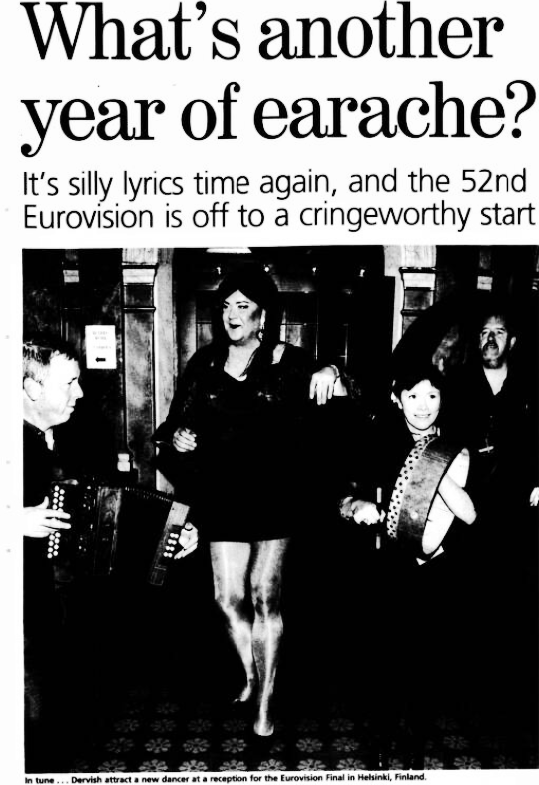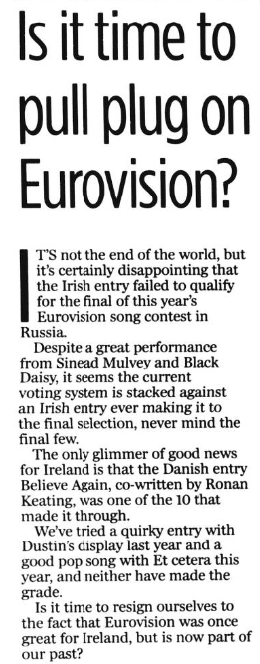May is the month of that major event in Europe’s (and now Australia’s) musical calendar: the Eurovision Song Contest. Love it, loath it, or patiently tolerate it, the Eurovision Song Contest has been making headlines ever since its first competition, held nearly 70 years ago in Lugano, Switzerland.
And now, using British and Irish newspapers from our collection, we take a peak into the annals of Eurovision history, assembling headlines from the first ever contest in 1956 all the way through to the 2009 event, using some of the most modern pages to be found on The Archive.
So without any further ado let’s dive into our feast of Eurovision Song Contest headlines. Read on to discover themes that echo throughout Eurovision coverage over the years, as we mark the agony and the ecstasy of the much beloved, much derided, annual music contest.
1. 1956 – ‘Eurovision Song-Writing Contest’
Location: Lugano, Switzerland | Winning Song: ‘Refrain,’ Switzerland | UK’s result: did not compete | Ireland’s result: did not compete
Mentions in the press of the inaugural Eurovision Song Contest were few and far between, perhaps because the United Kingdom and Ireland did not participate. However, it received some coverage here in Devon-based paper the Express and Echo, from 15 May 1956.
2. 1957 – ‘Song Contrasts’
Location: Frankfurt, West Germany | Winning Song: ‘Net als toen,’ the Netherlands | UK’s result: 7th | Ireland’s result: did not compete
1957 may have been the first year that the UK participated in the Eurovision Song Contest, but its entry caused little fanfare in the press. However, Howard Aimes writing for the Leicester Evening Mail did reflect on the contrasting musical styles of the competing countries.
3. 1958 – ‘Can you write a song?’
Location: Hilversum, the Netherlands | Winning Song: ‘Dors, mon amour,’ France | UK’s result: did not compete | Ireland’s result: did not compete
As in 1956, the UK did not compete at the 1958 Eurovision Song Contest. This lack of British (and indeed Irish) participation led to a dearth of Eurovision headlines that year, with the Chatham Standard in December 1958 calling out for songwriters to pen the UK’s entry for the following year.
4. 1959 – ‘This is not good enough!’
Location: Cannes, France | Winning song: ‘Een beetje,’ the Netherlands | UK’s result: 2nd | Ireland’s result: did not compete
Despite the UK claiming second place in the 1959 Eurovision Song Contest with ‘that lovable couple Pearl Carr and Teddy Johnson,’ Alan Morris penned what would become an all too familiar refrain with his coverage of the competition. In his article for the Aberdeen Evening Express, he cites the ‘scant applause’ received by the British performers, and the need for the UK to win the 1960 contest, as Britain would be acting as host country for the very first time.
5. 1960 – ‘This was all pop but no snap!’
Location: London, United Kingdom | Winning song: ‘Tom Pilibi,’ France | UK’s result: 2nd | Ireland’s result: did not compete
Although the UK claimed a consecutive second place in the 1960 competition, in just its fifth outing the Eurovision Song Contest was derided by Phil Diack for the Daily Herald as a ‘pantomime in praise of the poppycock of the pops.’ Diack honed in on ‘some desperately indifferent songs,’ commenting how he found all the numbers ‘equally bad.’
6. 1961 – ‘Home after song success’
Location: Cannes, France | Winning song: ‘Nous les amoureux,’ Luxembourg | UK’s result: 2nd | Ireland’s result: did not compete
The UK came second for the third time in a row in 1961, this time represented by the Allison brothers with their song Are You Sure? The duo were praised for their ‘song success’ by entertainment publication The Stage.
7. 1962 – ‘No compensation from Britain’
Location: Luxembourg City, Luxembourg | Winning song: ‘Un premier amour,’ France | UK’s result: 4th | Ireland’s result: did not enter
Despite the UK coming a very respectable fourth place in the 1962 Eurovision Song Contest, one journalist for the Wolverhampton Express and Star in March 1962 decried how ‘the British entry was so poorly regarded that it won votes from only five of the 15 countries in the competition.’
8. 1963 – ‘Pinky and Perky in Eurovision link’
Location: London, United Kingdom | Winning song: ‘Dansevise,’ Denmark | UK’s result: 4th | Ireland’s result: did not enter
With Ronnie Carroll representing the UK for the second time in a row, again coming fourth, The Stage chose to concentrate on the appearance of popular puppets Pinky and Perky as part of the BBC’s coverage of the 1963 Eurovision Song Contest.
9. 1964 – ‘The singer…not the song’
Location: Copenhagen, Demark | Winning song: ‘Non ho l’età’ | UK’s result: 2nd | Ireland’s result: did not enter.
The 1964 Eurovision Song Contest sparked a moment of reflection for a Leicester Daily Mercury journalist, as they pondered how the competition ‘offers such scope and material to students of sociology and politics that it seems ridiculous that all it is really about is pop songs.’
10. 1965 – ‘Kathy comes second’
Location: Naples, Italy | Winning song: ‘Poupée de cire, poupée de son,’ Luxembourg | UK’s result: 2nd | Ireland’s result: 6th
In 1965 the Sunday Mail chose to highlight the success of the UK entry in the Eurovision Song Contest, Kathy Kirby, who scored yet another second place for Britain, whilst picturing the winner for Luxembourg, France Gall. The piece also noted the popularity of the competition, which saw ‘millions of British viewers’ and 100 million viewers tune in across Europe.
11. 1966 – ‘McKellar Song Unplaced’
Location: Luxembourg City, Luxembourg | Winning song: ‘Merci, Chérie,’ Austria | UK’s result: 9th | Ireland’s result: 4th
From the heights of Kathy Kirby’s outing in the previous year’s competition, the UK scored a disappointment in the shape of Kenneth McKellar’s performance of A Man Without Love in Luxembourg, as reported on by the Sunday Post.
12. 1967 – ‘Sandie Wins For Britain’
Location: Vienna, Austria | Winning Song: ‘Puppet on a String,’ United Kingdom | UK’s result: 1st | Ireland’s result: 2nd
Scoring ‘Britain’s first win since the contest started 12 years ago’ was the barefooted 20-year-old singer Sandie Shaw, who wore ‘a pink dress she designed herself.’ Sandie’s seminal Eurovision Song Contest victory was celebrated in the usually rather serious pages of magazine the Illustrated London News.
13. 1968 – ”Congratulations’ for Cliff’
Location: London, United Kingdom | Winning Song: ‘La La La,’ Spain | UK’s result: 2nd | Ireland’s result: 4th
Despite missing out on the top spot by just one point in the 1968 Eurovision Song Contest, held at the Royal Albert Hall, the Coventry Evening Telegraph reports how legendary pop crooner Cliff Richard scored the ‘No. 1 spot’ with his song Congratulations, knocking The Beatles’ Lady Madonna off the top of the charts.
14. 1969 – ‘Lulu’s photo-finish in big pop farce’
Location: Madrid, Spain | Winning songs: ‘Un jour, un enfant,’ France, ‘De troubadour,’ the Netherlands, ‘Vivo cantando,’ Spain and ‘Boom Bang-a-Bang,’ United Kingdom | UK’s result: 1st | Ireland’s result 7th
The UK was victorious once again in 1969, however singer Lulu and her song Boom Bang-A-Bang shared the top spot with three other countries, in what the Sunday Mirror labelled a ‘big pop farce.’
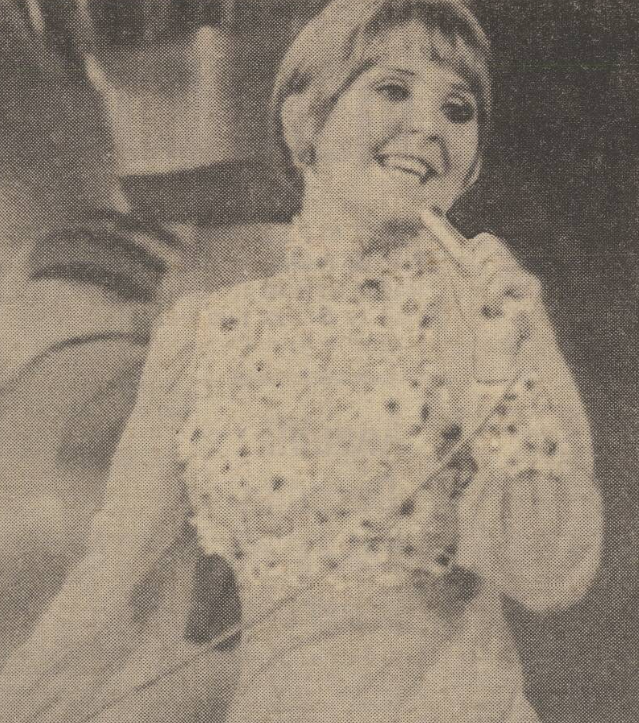
15. 1970 – ‘450m viewers see Irish girl win song contest’
Location: Amsterdam, the Netherlands | Winning Song: ‘All Kinds of Everything,’ Ireland | UK’s result: 2nd | Ireland’s result: 1st
As per The Scotsman, 450 million people tuned in to watch Ireland claim its first ever victory at the Eurovision Song Contest. In what would be the first of many wins, 18-year-old Rosemary Brown, ‘singing under the name of Dana,’ won for Ireland. In doing so, she pipped the UK’s entry, Mary Hopkin, at the post.
16. 1971 – ‘Eurovision Song Contest may soon be scrapped’
Location: Dublin, Ireland | Winning Song: ‘Un banc, un arbre, une rue,’ Monaco | UK’s result: 4th | Ireland’s result: 11th
By 1971, however, the future of the Eurovision Song Contest was allegedly in doubt. In November of that year entertainment bible The Stage reported how the future of the competition had been thrown into doubt because of the ‘recent difficulties in finding a country to stage next year’s contest.’ The BBC had stepped in to do the honours for 1972, although television producer Francis Hitching told The Stage how he thought ‘the contest has gone on too long and… the whole event has become very ponderous.’
17. 1972 – Tight Squeeze’
Location: Edinburgh, United Kingdom | Winning Song: ‘Après toi,’ Luxembourg | UK’s result: 2nd | Ireland’s result: 15th
The show would go on, however, although German commentator Hans Zerres faced an issue of his own at the 1972 contest, which was held in Scotland for the very first time.
18. 1973 – ‘I’m Too Old, Says Cliff’
Location: Luxembourg, Luxembourg City | Winning song: ‘Tu te reconnaîtras,’ Luxembourg | UK’s result: 3rd | Ireland’s result: 10th
Participating in his second Eurovision Song Contest, the Daily Mirror reported how Cliff Richard was the ‘clear favourite’ to win the 1973 competition. However, Cliff placed a disappointing third, which caused him to remark how at 32 he was ‘now too old ever to win.’
19. 1974 – ‘Eurovision group hopes to shake off that ‘fishy’ image!’
Location: Brighton, United Kingdom | Winning Song: ‘Waterloo,’ Sweden | UK’s result: 4th | Ireland’s result: 7th
This year marks 50 years since the Swedish group ABBA stormed to victory at the 1974 Eurovision Song Contest with their hit Waterloo, the Belfast News-Letter on 20 April 1974 reporting how ”doing their own thing’ paid off for the Swedish pop group ABBA.’ But what was ‘fishy’ about their image? The Belfast News-Letter outlines how ‘the Abba herring company is known throughout Sweden and its name is synonymous with herring.’ We’ll hazard a bet you didn’t know that!
20. 1975 – ‘If it must go on, can’t they do a better job?’
Location: Stockholm, Sweden | Winning song: ‘Ding-a-dong,’ the Netherlands | UK’s result: 2nd | Ireland’s result: 9th
Despite the rip-roaring success of ABBA in the previous year, and an audience of 500 million people tuning in from across 35 countries to watch the 1975 contest, The Stage magazine on 27 March 1975 demanded that if the Eurovision Song Contest was to continue, couldn’t ‘they do a better job?’ The piece highlighted the problems of ‘repetitive’ material, a ‘mediocre’ programme and ‘amateur’ performers.
21. 1976 – ”Kisses’ on the gravy train’
Location: The Hague, the Netherlands | Winning Song: ‘Save Your Kisses For Me,’ United Kingdom | UK’s result: 1st | Ireland’s result: 10th
It seems every time (at least historically) the British press had a gripe about the future of Eurovision, the United Kingdom came out and won the contest. This was true in 1976 when band Brotherhood of Man won with their song Save Your Kisses For Me, which the Wolverhampton Express and Star reported was set to ‘earn hundreds of thousands of pounds for Britain,’ with the record poised to ‘sell as many as ten million copies.’
22. 1977 – ‘Eurovision contest: backstage’
Location: London, United Kingdom | Winning song: ‘L’Oiseau et l’Enfant,’ France | UK’s result: 2nd | Ireland’s result: 3rd
For the 1977 Eurovision Song Contest, held at the Wembley Conference Centre, journalist David Baxter went ‘backstage‘ for local newspaper the Harrow Observer. The 1977 competition was ‘won by a surprise outsider, Marie Myriam from France…on the night before her 20th birthday.’
23. 1978 – ‘Israel KO’s Co-Co in Song Contest’
Location: Paris, France | Winning song: ‘A-Ba-Ni-Bi,’ Israel | UK’s result: 11th | Ireland’s Result: 5th
A day after the 1978 Eurovision Song Contest the Sunday Mirror reported how ‘British favourites Co-Co took a KO’ in the singing competition, which was held in Paris. Co-Co, with their song The Bad Old Days, came in tenth place, with Israel winning for the first time. The Sunday Mirror clarified how ‘Israel, while not a European country, takes part in the contest because of its membership of the European Broadcasting Union, which sponsors the contest.’
24. 1979 – ‘The Band of Milk and Honey’
Location: Jerusalem, Israel | Winning Song: ‘Hallelujah,’ Israel | UK’s result: 7th | Ireland’s result: 5th
For the second year in a row Israel ‘sang their way to the top of the Europops’ with their entry Hallelujah, which was sung by the band Milk and Honey. As the Sunday Mirror reported on 1 April 1979, the event was not without controversy, Spanish judges giving ten points to both Portugal and Israel (something not permitted by the voting rules), and Irish performer Cathal Dunne suffering from ‘an attack of nerves as he sang his ballad Happy Days.’
25. 1980 – ‘Is this the biggest yawn on the box?’
Location: The Hague, the Netherlands | Winning song: ‘What’s Another Year?,’ Ireland | UK’s result: 3rd | Ireland’s result: 1st
With the onset of the 1980s came a rise in anti-Eurovision feeling, the Kent Evening Post summing up such attitudes with its headline ‘Is this the biggest yawn on the box?’ Despite attracting ‘400 million people – including 20 million in Britain,’ the article labelled the Eurovision Song Contest as ‘the biggest non-event in showbusiness.’
26. 1981 – ‘Bucks Fizz is The Top Pop!’
Location: Dublin, Ireland | Winning Song: ‘Making Your Mind Up,’ United Kingdom | UK’s result: 1st | Ireland’s result: 5th
However, as part of a familiar pattern, the UK’s entry in the following year of 1981 stepped up to provide ‘a British victory in song contest,’ as detailed by the Sunday Mirror. The paper described how the group Bucks Fizz beat the nineteen other nations ‘in sparkling style’ with their song Making Your Mind Up.
27. 1982 – ‘Back to School’
Location: Harrogate, United Kingdom | Winning Song: ‘Ein bißchen Frieden,’ Germany | UK’s result: 7th | Ireland’s result: 11th
Take a breath – we’re halfway through our list of Eurovision headlines! Meanwhile, in 1982, winning the Eurovision Song Contest for Germany for the very first time was West German singer Nicole, who was pictured making her ‘return to the classroom in her home town’ of Birkenfeld by the Liverpool Echo after her historic win.
28. 1983 – ‘A song for Europe hits a sour note’
Location: Munich, West Germany | Winning song: ‘Si la vie est cadeau,’ Luxembourg | UK’s result: 6th | Ireland’s result: did not compete
Prior to the 1983 competition, the Reading Evening Post posed the question: ‘is there a future for the Eurovision Song Contest?’ Again, the costs around hosting the event were highlighted, the paper reporting them to be at the £1 million mark, whilst negative attitudes around the content of the contest continued to be aired, French director Pierre Bouteiller pronouncing how ‘the show is a monument to drivel.’
29. 1984 – ‘Not a devoted fan…’
Location: Luxembourg City, Luxembourg | Winning song: ‘Diggi-Loo Diggi-Ley,’ Sweden | UK’s result: 7th | Ireland’s result: 2nd
With the UK entering a poor patch of Eurovision form following Bucks Fizz’s victory in 1981, Daily Mirror reader Mrs M. Anstruther of Winchester blamed the ‘clothes and hairdos’ of Britain’s 1984 entry Belle and the Devotions for their subsequent loss.
30. 1985 – ‘Eurovision song contest 30 years on’
Location: Gothenburg, Sweden | Winning song: ‘La det swinge,’ Norway | UK’s result: 4th | Ireland’s result: 6th
With the 1985 Eurovision Song Contest being the competition’s 30th outing, Albert Watson for the Reading Evening Post surveyed 30 years of the annual event. He lambasted it as being about ‘as much use as a chocolate teapot,’ commenting how ‘each year it becomes less and less relevant to trends in popular music,’ and comparing it to a ‘creaky old merry-go-round.’
31. 1986 – ‘Hitting on a Euro pop formula’
Location: Bergen, Norway | Winning Song: ‘J’aime la vie,’ Belgium | UK’s result: 7th | Ireland’s result: 4th
On the day of the 1986 Eurovision Song Contest Huw Rossiter published a more balanced piece for the Liverpool Daily Post, citing the marmite effect of the competition. Rossiter examined the difficulties of translating the success of British pop music onto the Eurovision stage, quoting the publisher of the UK’s 1986 act Ryder, Maureen Darbyshire, as saying ‘there’s a huge market for British material in the European charts but it’s difficult to gauge a European winner.’
32. 1987 – ‘Logan’s A Hero’
Location: Brussels, Belgium | Wining Song: ‘Hold Me Now,’ Ireland | UK’s result: 13th | Ireland’s result: 1st
It would be Ireland, however, who would go on to snatch victory in the 1987 Eurovision Song Contest. Irish singer Johnny Logan was described by the Daily Record as weeping ‘tears of joy after his historic victory,’ after he became the first person to win the competition twice.
33. 1988 – ‘A New Vision!’
Location: Dublin, Ireland | Winning Song: ‘Ne partez pas sans moi,’ Switzerland | UK’s result: 2nd | Ireland’s result: 8th
In 1988 change was afoot in the UK. As reported by the Liverpool Echo on 23 March 1988, British viewers could now choose their own entry for the Eurovision Song Contest. The stunt nearly paid off, with singer Scott Fitzgerald placing second with his song Go.
34. 1989 – ‘Yugoslavs win Eurovision’
Location: Lausanne, Switzerland | Winning Song: ‘Rock Me,’ Yugoslavia | UK’s result: 2nd | Ireland’s result: 18th
With the Iron Curtain in Europe beginning to crumble, the Dundee Courier reported on Yugoslavia’s debut victory at the 1989 Eurovision Song Contest, with their ‘catchy number Rock Me.’
35. 1990 – ‘Emma to sing up to save the world’
Location: Zagreb, Yugoslavia | Winning song: ‘Insieme: 1992,’ Italy | UK’s result: 6th | Ireland’s result: 2nd
As the 1990s rolled around the Liverpool Echo gave the UK’s youngest ever Eurovision entry, 15-year-old Emma Booth, the pressure of singing up ‘to save the world.’ Emma’s tune was the first British Eurovision entry ‘with a Green theme.’
36. 1991 – ‘Fury at Eurovision shambles’
Location: Rome, Italy | Winning Song: ‘Fångad av en stormvind,’ Sweden | UK’s result: 10th | Ireland’s result: 10th
In the lead up to the 1992 Eurovision Song Contest, which was held in Rome, the Irish Independent raged at the ‘Eurovision shambles,’ due to ‘bad planning’ on the part of the organisers. The newspaper reported how the auditorium where the show was to be held was ‘still full of scaffolding,’ and how ‘contestants have stormed out of rehearsals in protest at the lack of facilities.’
37. 1992 – ‘Notes of Despair’
Location: Malmö, Sweden | Winning Song: ‘Why Me,’ Ireland | UK’s result: 2nd | Ireland’s result: 1st
For the Birmingham Mail in 1992 the entire Eurovision Song Contest was something of a shambles, with journalist Paul Flower expressing his ‘perverse fascination’ over the ‘ritual humiliation’ of the competition.
38. 1993 – ‘Er, what’s another year?’
Location: Millstreet, Ireland | Winning Song: ‘In Your Eyes,’ Ireland | UK’s result: 2nd | Ireland’s result: 1st
Whilst journalists in the UK were bemoaning having to watch the Eurovision Song Contest, their Irish counterparts were bemoaning having to host yet another competition, Niamh Kavanagh being victorious in the 1993 contest, following hot on the heels of Linda Martin’s 1992 win for Ireland.
39. 1994 – ‘Ruff Night for the UK’
Location: Dublin, Ireland | Winning Song: ‘Rock ‘n’ Roll Kids,’ Ireland | UK’s result: 10th | Ireland’s result: 1st
And while Ireland was celebrating a record-breaking, third successive, win at the 1994 contest, the Daily Record was bemoaning a ‘ruff night for the UK.’ Singer Frances Ruffelle came tenth, after ‘Austria decided that Britain’s offering…was worth one measly point.’
40. 1995 – ‘Still going strong after 40 years…’
Location: Dublin, Ireland | Winning Song: ‘Nocturne,’ Norway | UK’s result: 10th | Ireland’s result: 14th
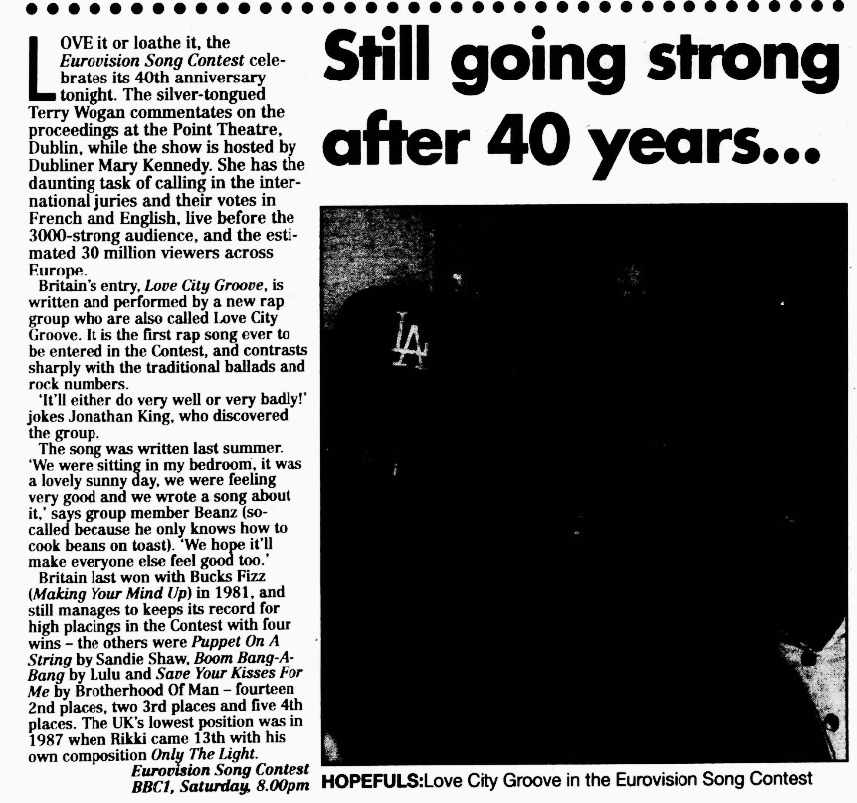
In 1995 the Chester Chronicle celebrated the 40th Eurovision Song Contest. The UK marked the occasion with something a little different – ‘the first rap song ever to be entered in the’ competition – a composition entitled Love City Groove performed by a group of the same name.
41. 1996 – ‘Talentless Terry slags Euro bore’
Location: Oslo, Norway | Winning Song: ‘The Voice,’ Ireland | UK’s result: 8th | Ireland’s result: 1st
Ahead of the 1996 contest, which Ireland won for a seventh, record-breaking, time, Dublin’s Evening Herald chose to concentrate on that ‘grand old man’ who was synonymous with Eurovision, Terry Wogan. Dubbed the ‘man forever condemned to be associated with the Eurovision Song Contest,’ Wogan was about to commentate on his ’17th consecutive’ competition.
42. 1997 – ‘Eurovision sunshine for UK’
Location: Dublin, Ireland | Winning Song: ‘Love Shine A Light,’ United Kingdom | UK’s result: 1st | Ireland’s result: 2nd
1997 saw the UK’s last ever Eurovision win, Katrina and the Waves storming to victory with Love Shine A Light. The Scotsman newspaper was quick to tie this win to another victory, that of the Labour election ‘landside,’ as it cited the ‘new post-election feel-good factor.’
43. 1998 – ‘Making your mind up on contest’
Location: Birmingham, United Kingdom | Winning song: ‘Diva,’ Israel | UK’s result: 2nd | Ireland’s result: 9th
Only a year after the UK claimed victory in the Eurovision Song Contest, the British press was again asking questions about the competition’s future. For the Herts and Essex Observer’s Features Editor Peter Green, the contest was ‘once a novelty in black and white,’ and now, in 1998, it was ‘time to sing it off the screen forever.’
44. 1999 – ‘Play it again – and mainly in English’
Location: Jerusalem, Israel | Winning Song: ‘Take Me to Your Heaven,’ Sweden | UK’s result: 12th | Ireland’s result: 17th
For the final Eurovision Song Contest of the 20th century change was afoot. As the Birmingham Daily Post highlighted, ‘for the first time in 22 years, countries are being allowed to sing in any language they choose.’ The impact of this was that eleven countries ‘opted to sing in English,’ the winning Swedish entry being in that language.
45. 2000 – ‘Eurovision of loveliness’
Location: Stockholm, Sweden | Winning Song: ‘Fly on the Wings of Love,’ Denmark | UK’s result: 16th | Ireland’s result: 6th
As the Eurovision Song Contest entered the new millennium, The Stage’s television critic Harry Venning described the spectacle as ‘tortuously boring.’ However, in comparison to the BAFTA Television Awards, broadcast on the following day, for Venning Eurovision at least ‘possessed the competitive spectacle of a gladiatorial bloodbath.’
46. 2001 – ‘Euro song ‘worst ever”
Location: Copenhagen, Denmark | Winning Song: ‘Everybody,’ Estonia | UK’s result: 15th | Ireland’s result: 21st
The UK’s poor run of 21st century Eurovision form continued with its 2001 entry, No Dream Impossible, which was sang by Lindsay Dracass. The tune was deemed to be so weak, that the Northamptonshire Evening Telegraph reported how not ‘a single bet of over £10’ was put on the song to win.
47. 2002 – ‘Bards of the Baltic’
Location: Tallinn, Estonia | Winning Song: ‘I Wanna,’ Latvia | UK’s result: 3rd | Ireland’s result: 11th
With Estonia hosting the Eurovision Song Contest for the very first time in 2002, flirting ‘with tack’ as it did so, The Scotsman took the opportunity to showcase travel opportunities to the Baltic country, as well as its ‘musical history.’
48. 2003 – ‘It’ll be alright on the night’
Location: Riga, Latvia | Winning song: ‘Everyway That I Can,’ Turkey | UK’s result: 26th | Ireland’s result: 11th
Following hot on the heels of its neighbouring country’s success, Latvia won the Eurovision Song Contest in 2002, meaning its capital city Riga would play host to the contest in 2003. Fiona Looney, writing for the Sunday Tribune, observed how ‘given that they’d never heard of the world’s single biggest annual television event before 1999, the people of Latvia have embraced the Eurovision Song Contest like some kind of big Eastern European Johnny Logan.’
49. 2004 – ‘Here we go again’
Location: Istanbul, Turkey | Winning Song: ‘Wild Dances,’ Ukraine | UK’s result: 16th | Ireland’s result: 22nd
Following Chris Doran’s poor performance for Ireland at the 2004 contest Jim Haynes for the Wicklow People bemoaned ‘God be with the days when Ireland only had to turn up for a Eurovision and they’d hand over the trophy.’ A plan was afoot, however, to return the country to its wining ways, with a new look You’re A Star show unveiled in order to pick Ireland’s next competitor.
50. 2005 – ‘Celine Dion wouldn’t be seen dead in the Eurovision’
Location: Kyiv, Ukraine | Winning Song: ‘My Number One,’ Greece | UK’s result: 22nd | Ireland’s result: failed to qualify
It’s our 50th entry, which means this headline marks the 50th year of Eurovision. However, for Sunday Tribune columnist Fiona Looney, the competition was not what it once was. Looney notes how ‘Celine Dion wouldn’t be seen dead in the Eurovision nowadays, which is a shocking indictment of how the mighty has fallen into the wrong hands.’ Legendary Canadian singer Céline Dion won the competition for Switzerland in 1988.
51. 2006 – ‘Europe dances to another beat’
Location: Athens, Greece | Winning Song: ‘Hard Rock Hallelujah,’ Finland | UK’s result: 19th | Ireland’s result: 10th
In the lead up to the 2006 Eurovision Song Contest, Nick Awde for The Stage predicted how the UK is ‘never likely to win the contest again, due in part to changing voting patterns. So far, Awde has been proved right.
52. 2007 – ‘What’s another year of earache?’
Location: Helsinki, Finland | Winning Song: ‘Molitva,’ Serbia | UK’s result: 22nd | Ireland’s result: 24th
Jason O’Brien for the Irish Independent heralded the ‘cringeworthy start’ of the 52nd Eurovision Song Contest, highlighting the competition’s ‘tradition of embarrassing wordplay.’ With Ukraine and Serbia slated as the favourites, the latter eventually winning out, Ireland took the bottom spot, with the UK just behind.
53. 2008 – ‘Juries back in Eurovision to beat vote bias’
Location: Belgrade, Serbia | Winning Song: ‘Believe,’ Russia | UK’s result: 25th | Ireland’s result: failed to qualify
The 2008 competition was dismal for both Ireland and the UK, Ireland’s iconic entry Dustin the turkey failing to make it past the semi-finals, and Andy Abrahams for the UK coming last. In a bid to beat so-called voting ‘bias,’ in September 2008 the Evening Herald reported how ‘juries are to return to next year’s Eurovision Song Contest…following criticism of tactical voting by former eastern bloc countries.’
54. 2009 – ‘Is it time to pull plug on Eurovision?’
Location: Moscow, Russia | Winning Song: ‘Fairytale,’ Norway | UK’s result: 5th | Ireland’s result: failed to qualify
If you’ve stuck with us this far – to our 54th headline from the 54th Eurovision Song Contest – thank you! Sadly it is a rather downbeat one, following another disappointing showing for Ireland in the 2009 competition, which saw the country again fail to qualify for the final. This caused the Evening Herald to ask whether it was ‘time to resign ourselves to the fact that Eurovision was once great for Ireland, but is now part of our past?’
However, Ireland would soldier valiantly on, as Eurovision continues to captivate the world, spawning a film, and an new entrant from the other side of the world, Australia. Will you be tuning in on 11 May? This year’s Eurovision marks 50 years since ABBA’s famous win. What headlines will be made this year? And what other headlines can you discover in the pages of our newspapers?


